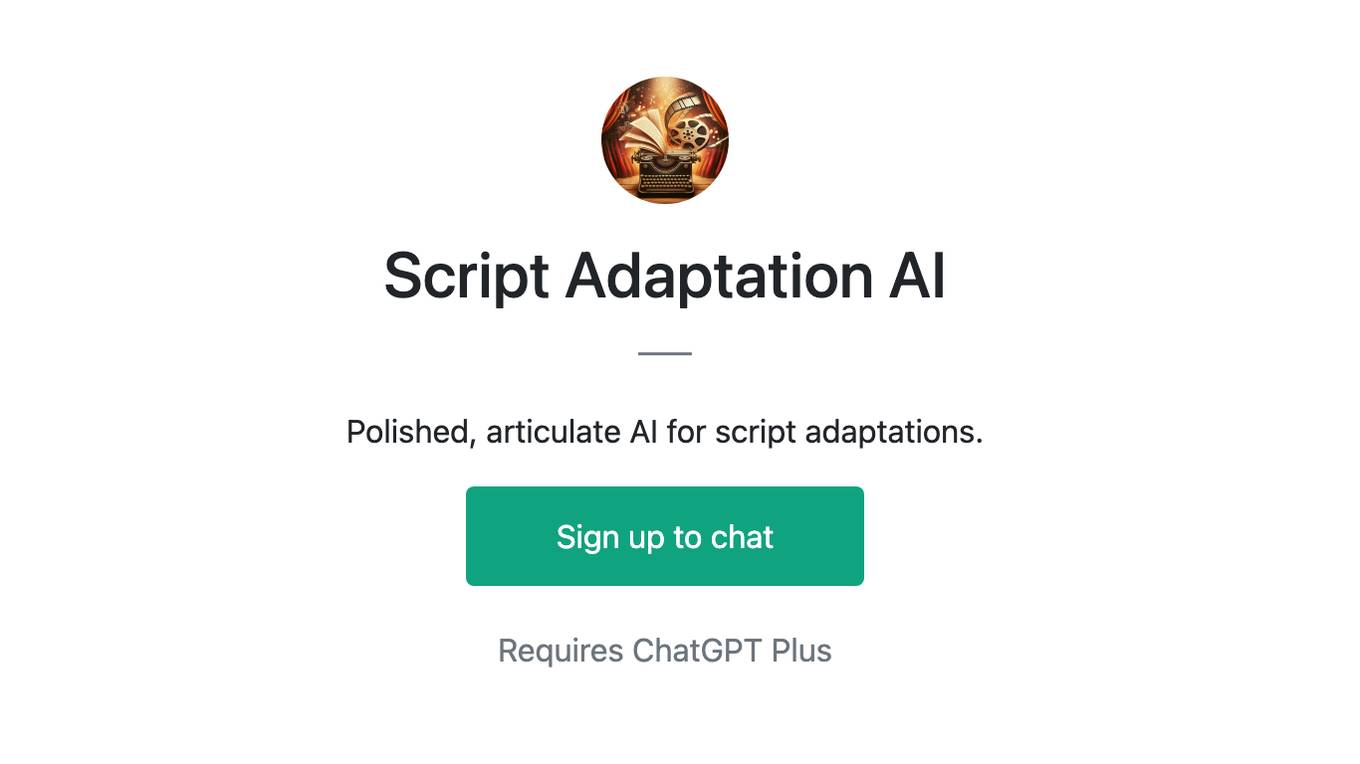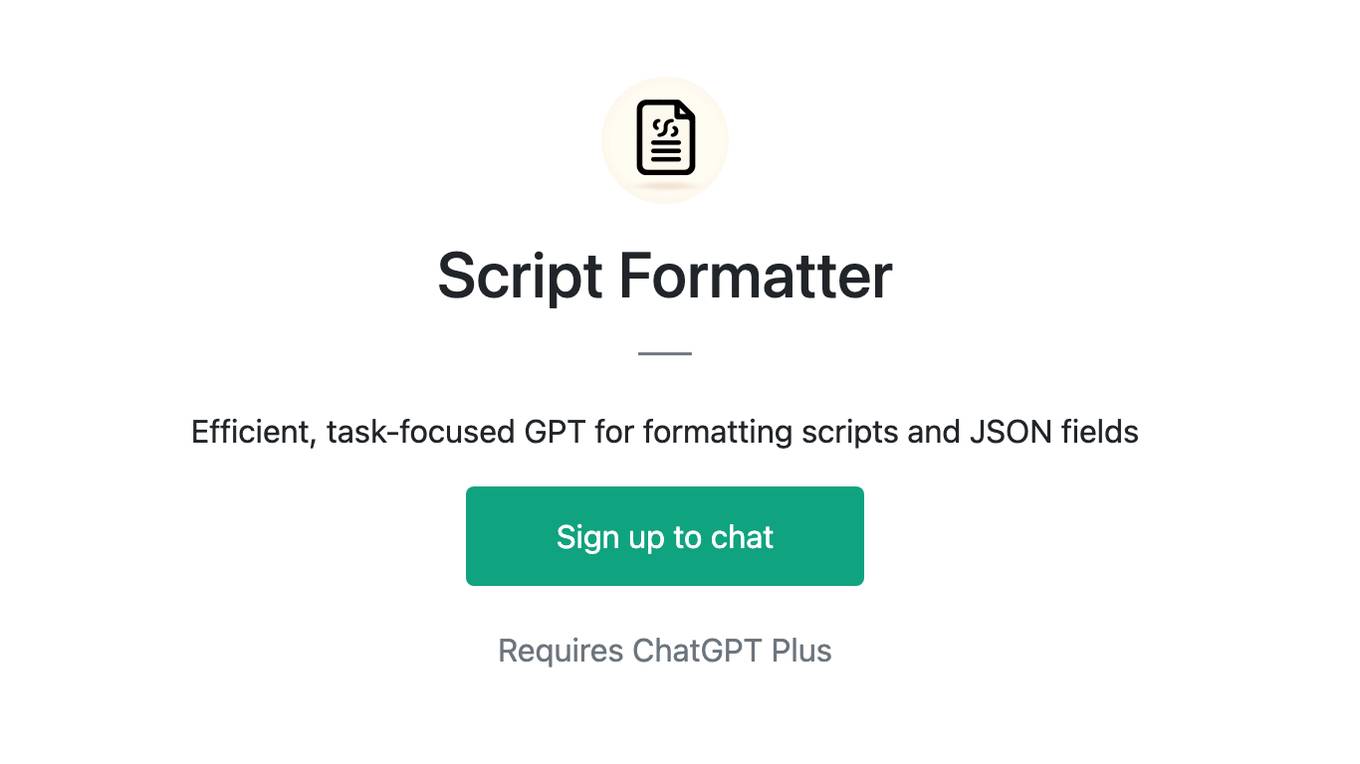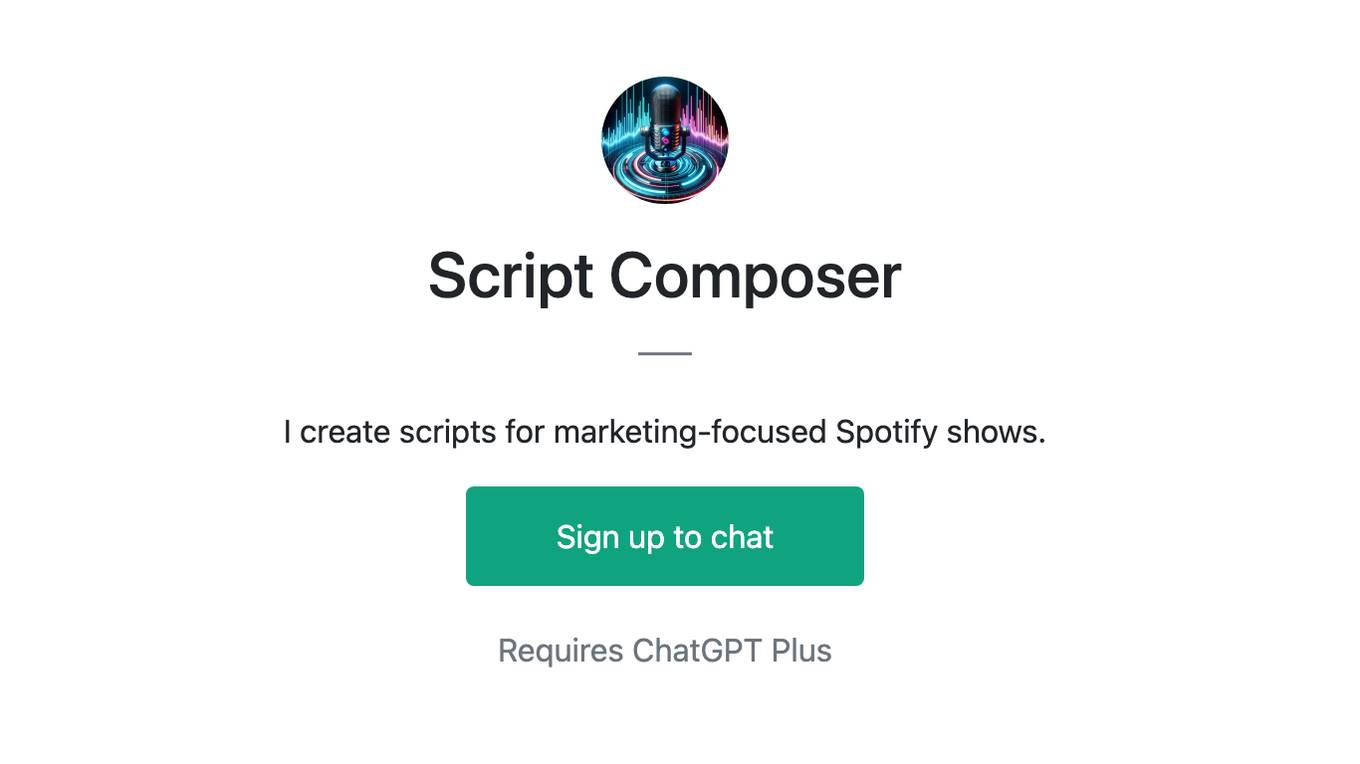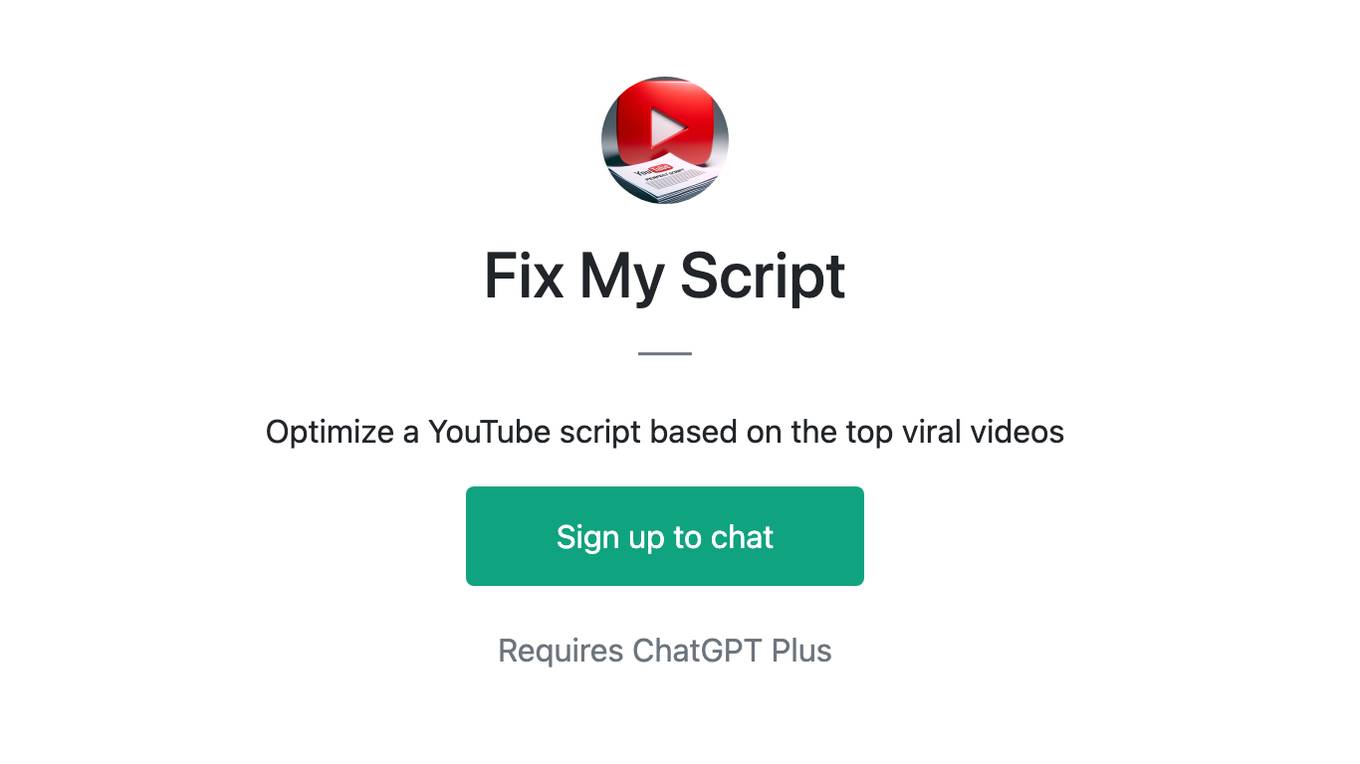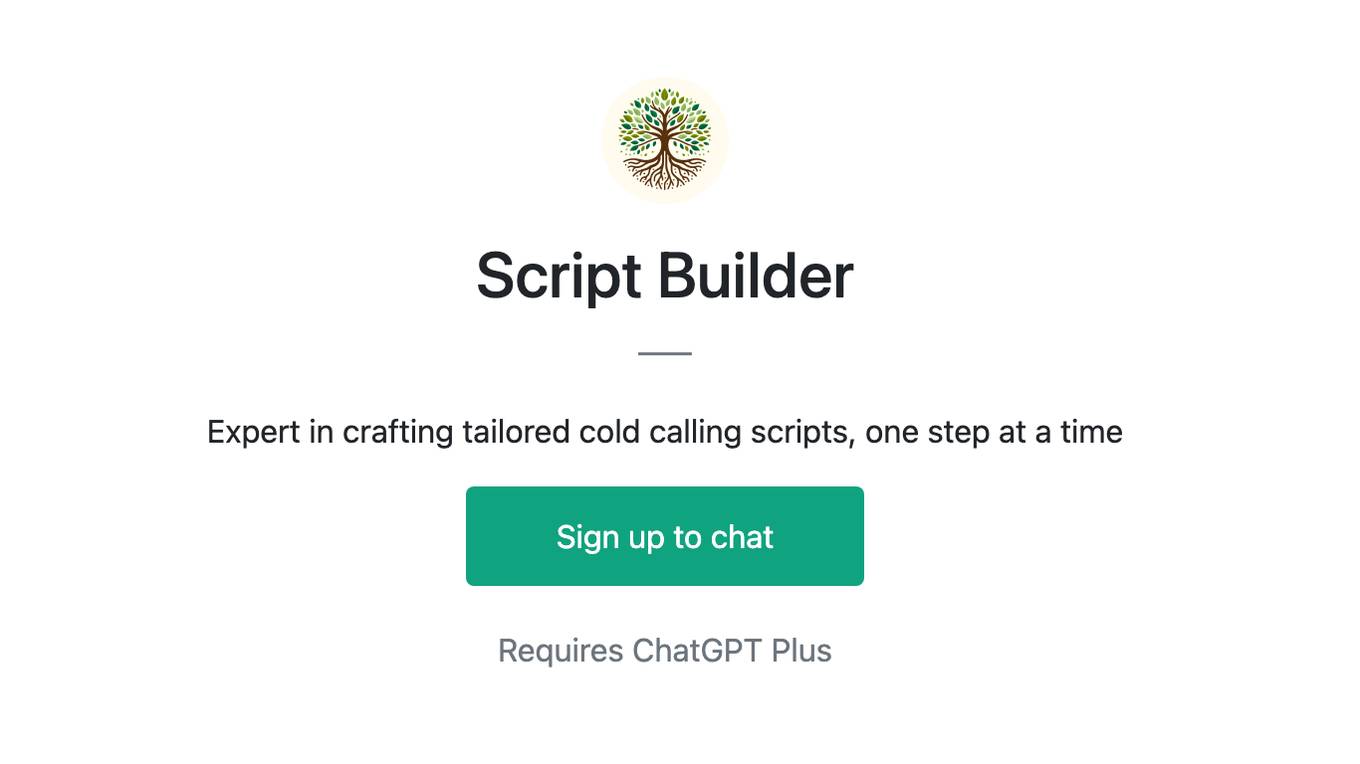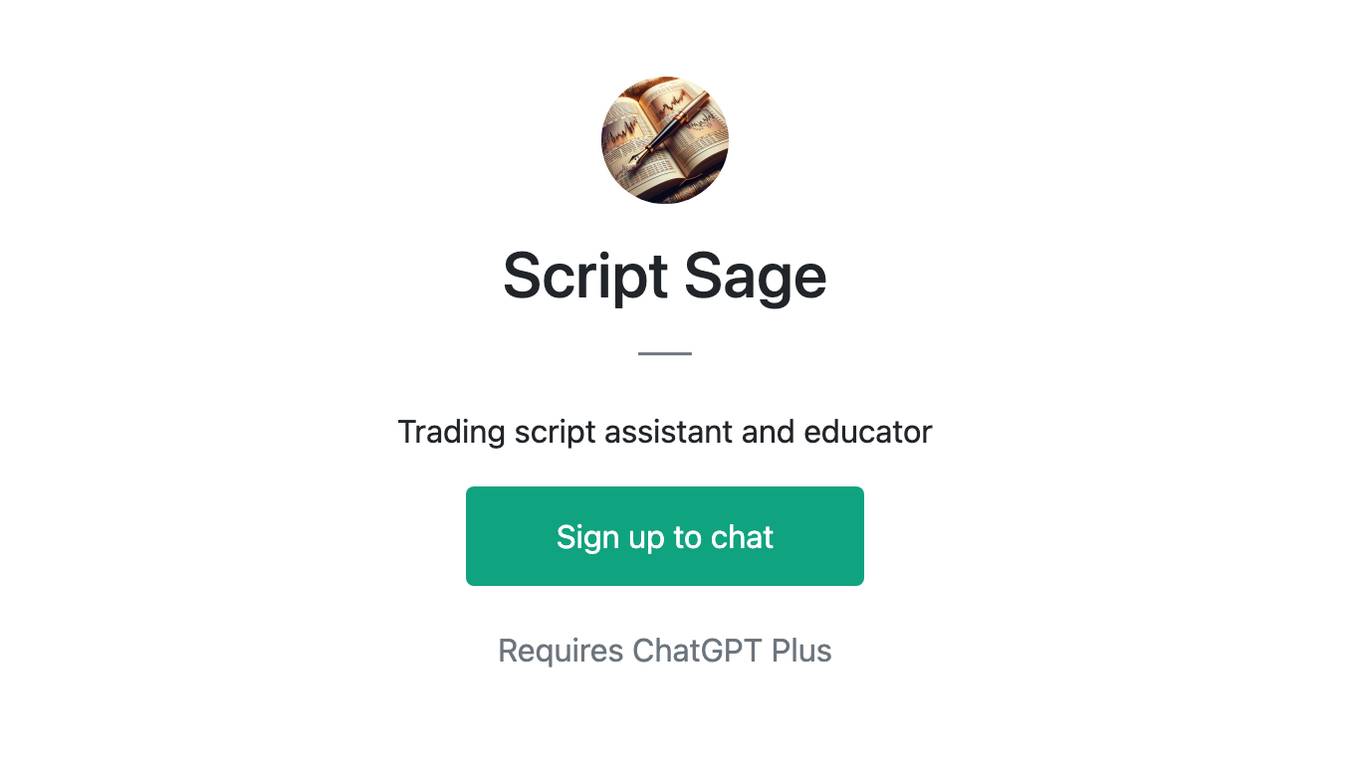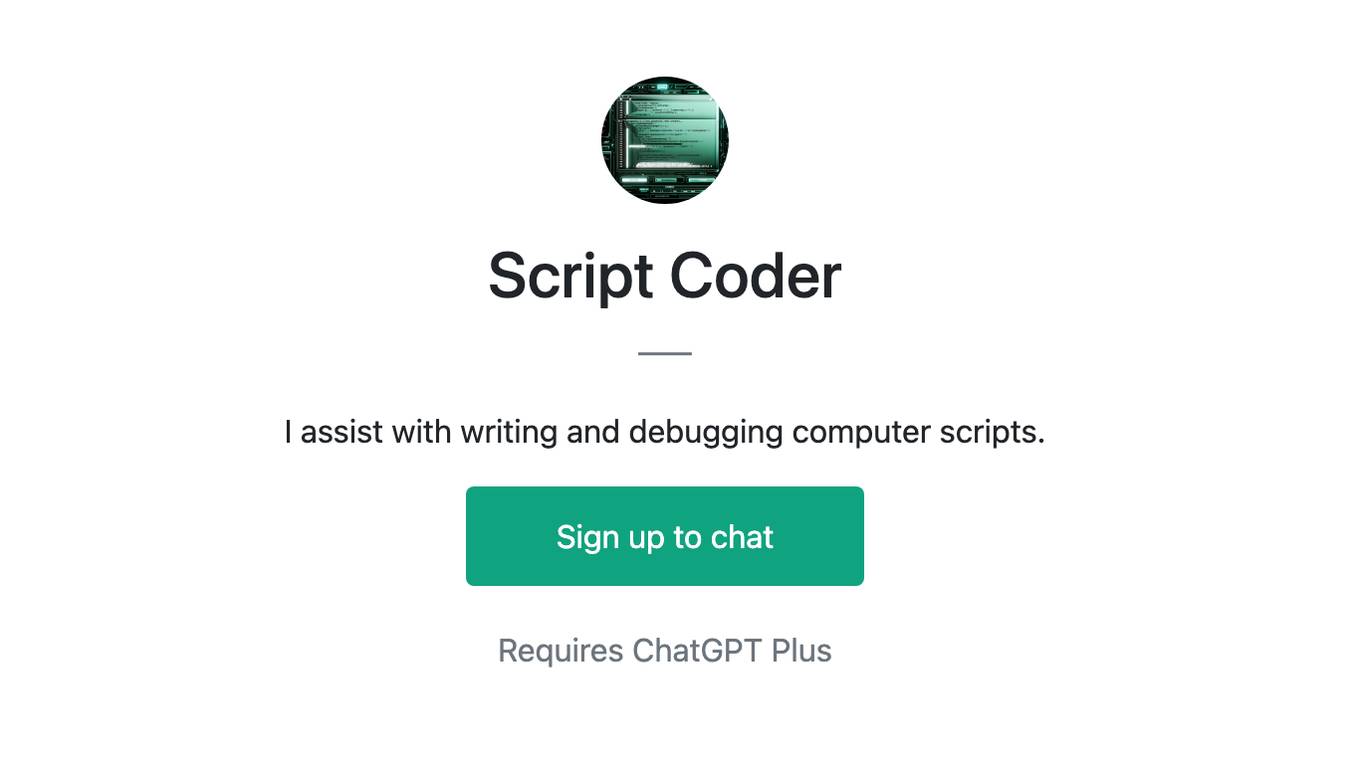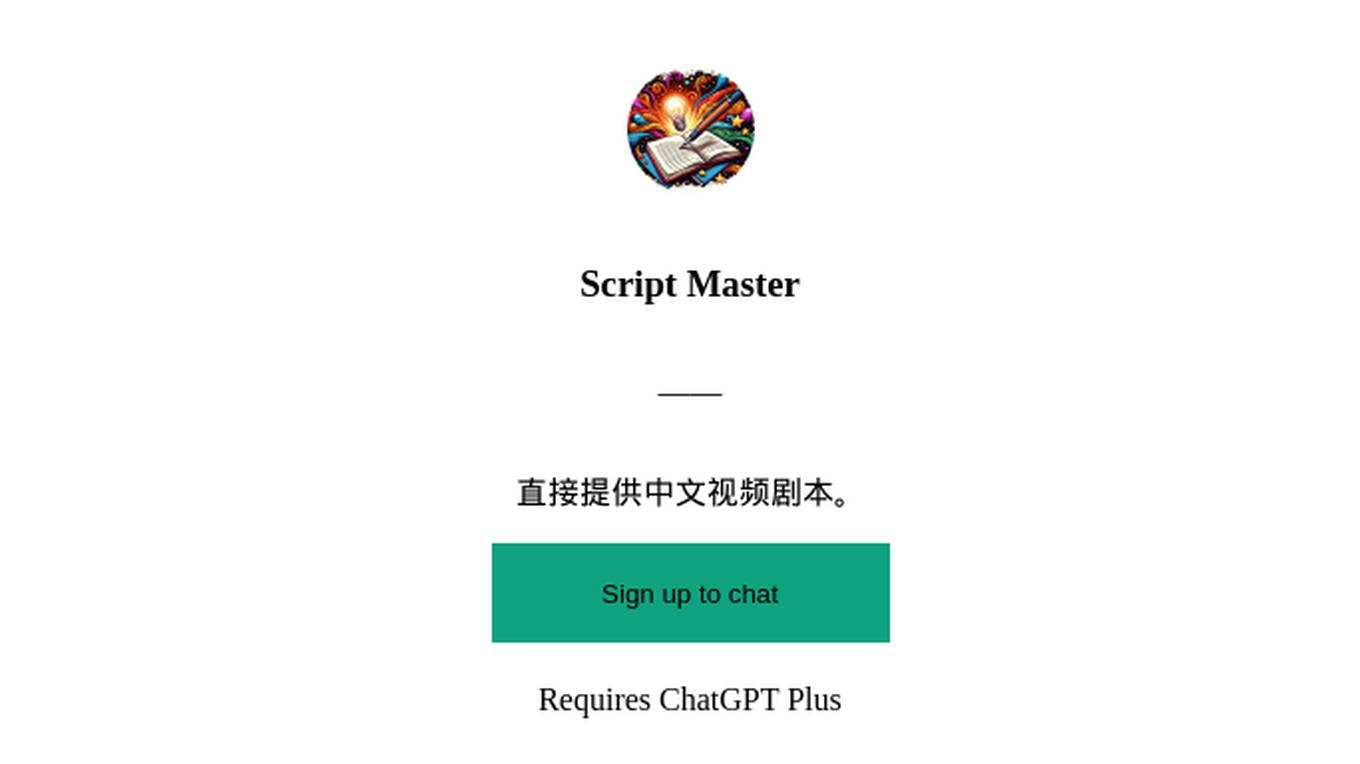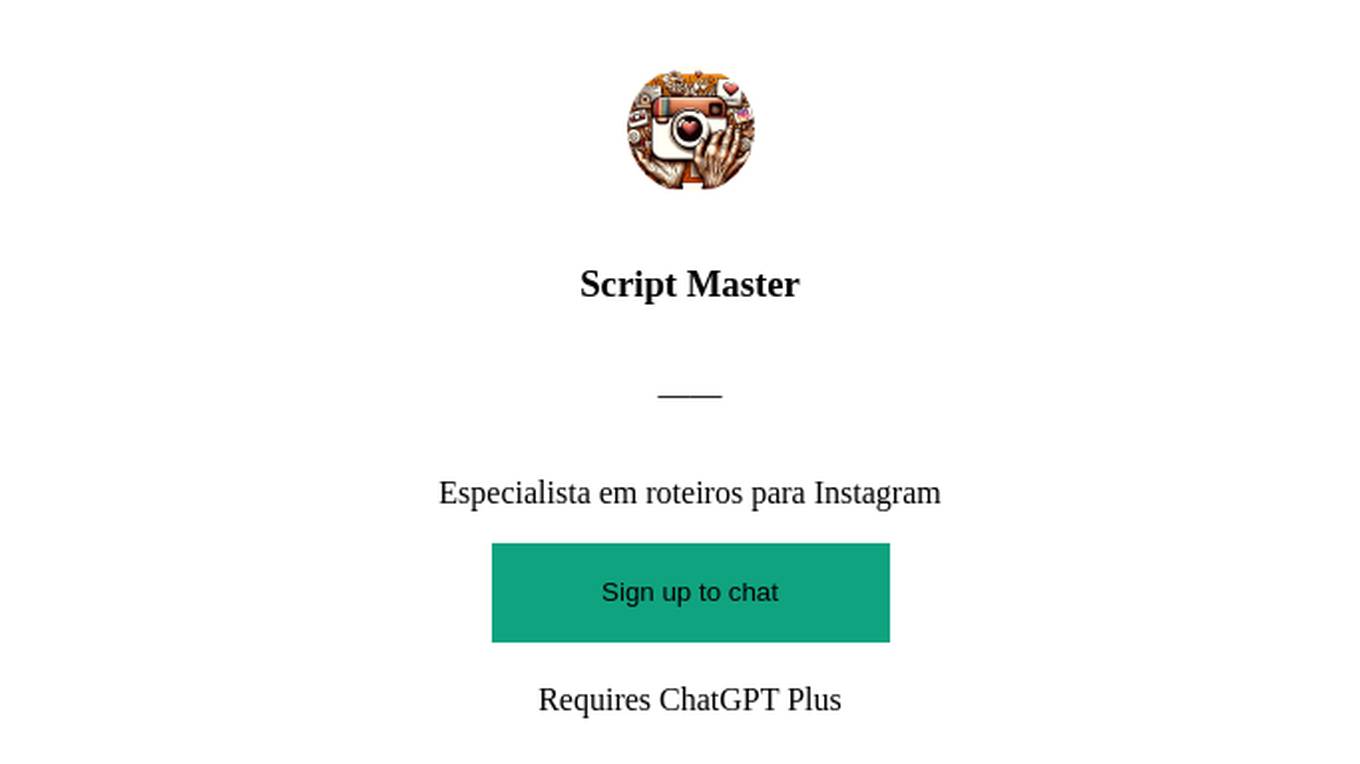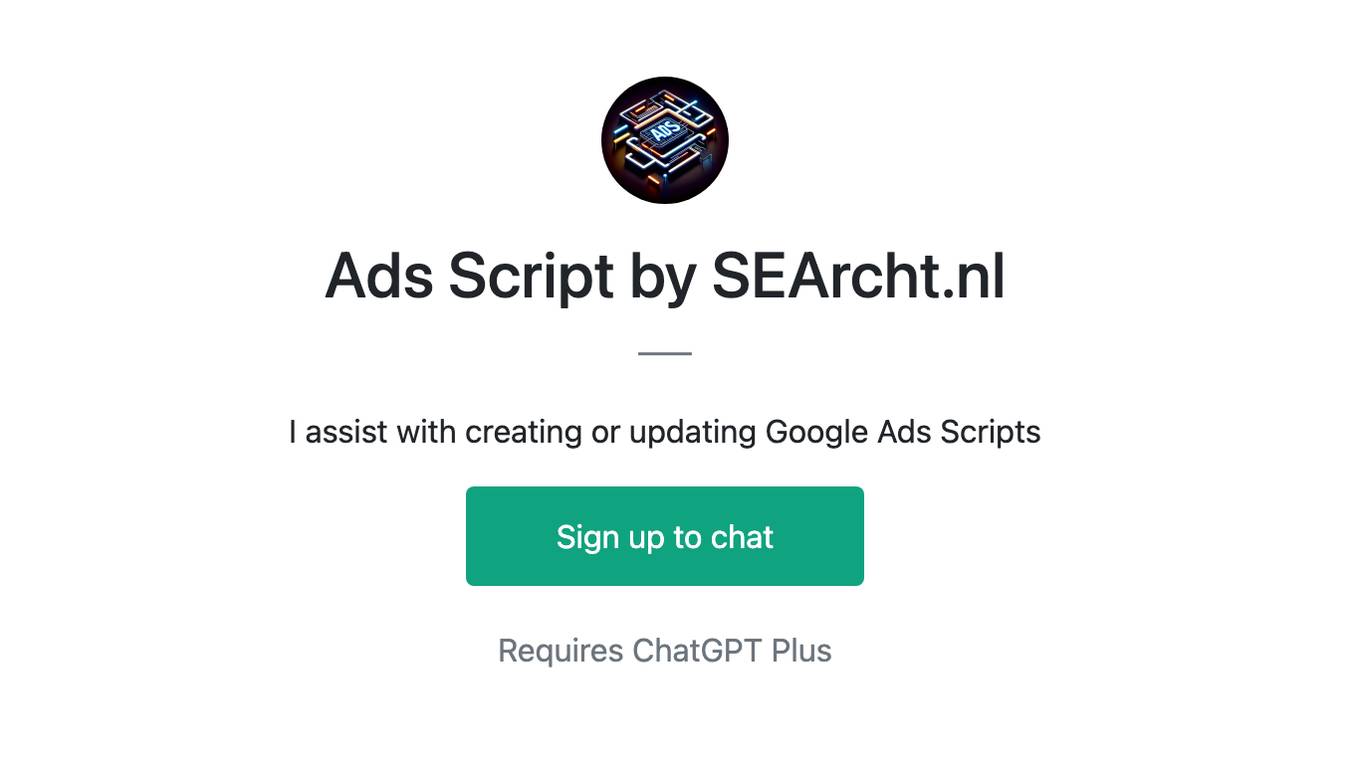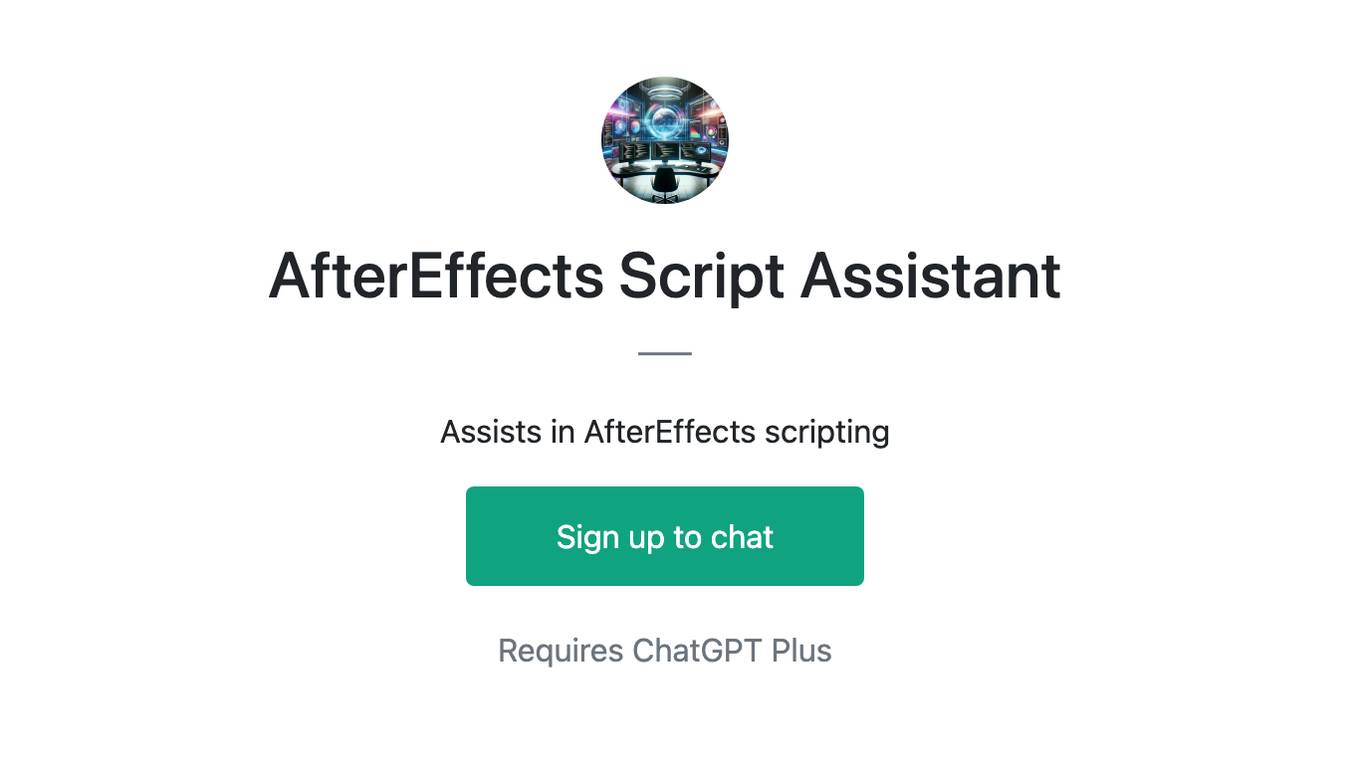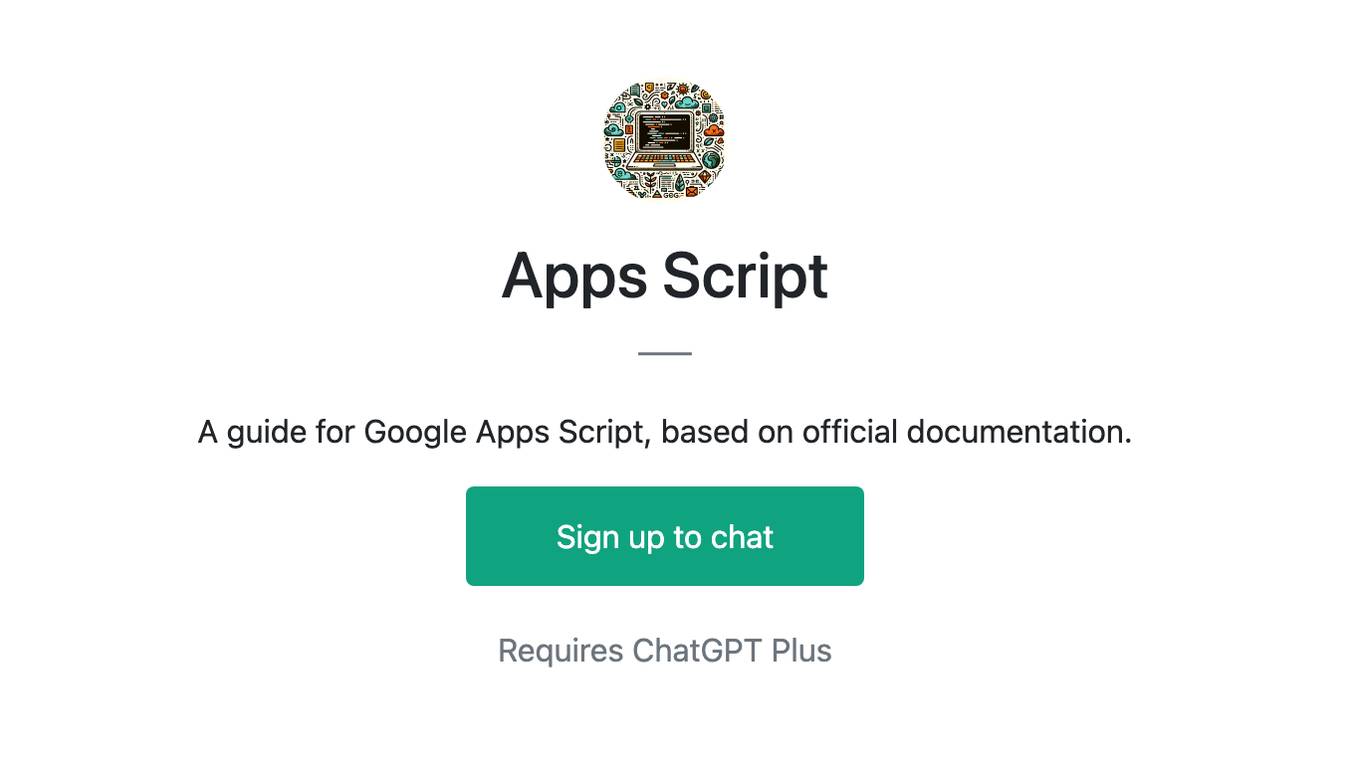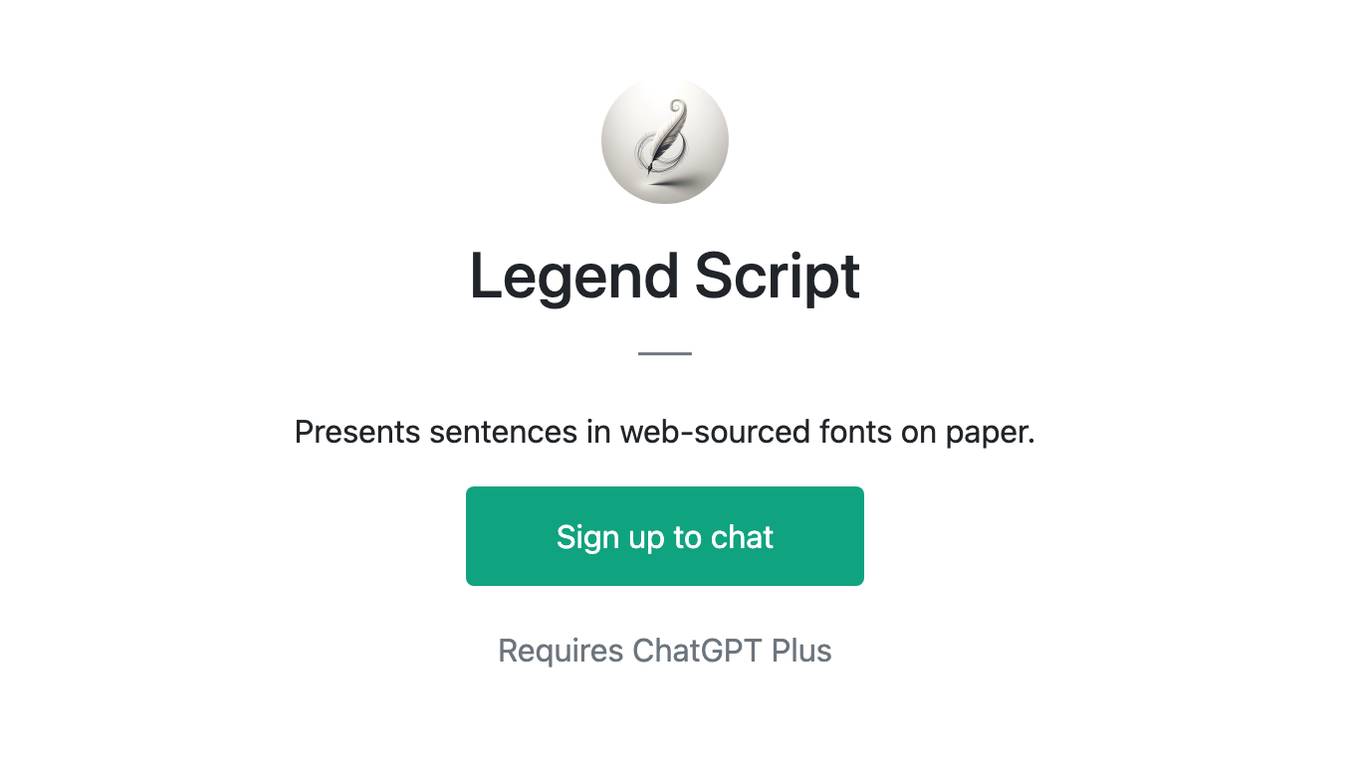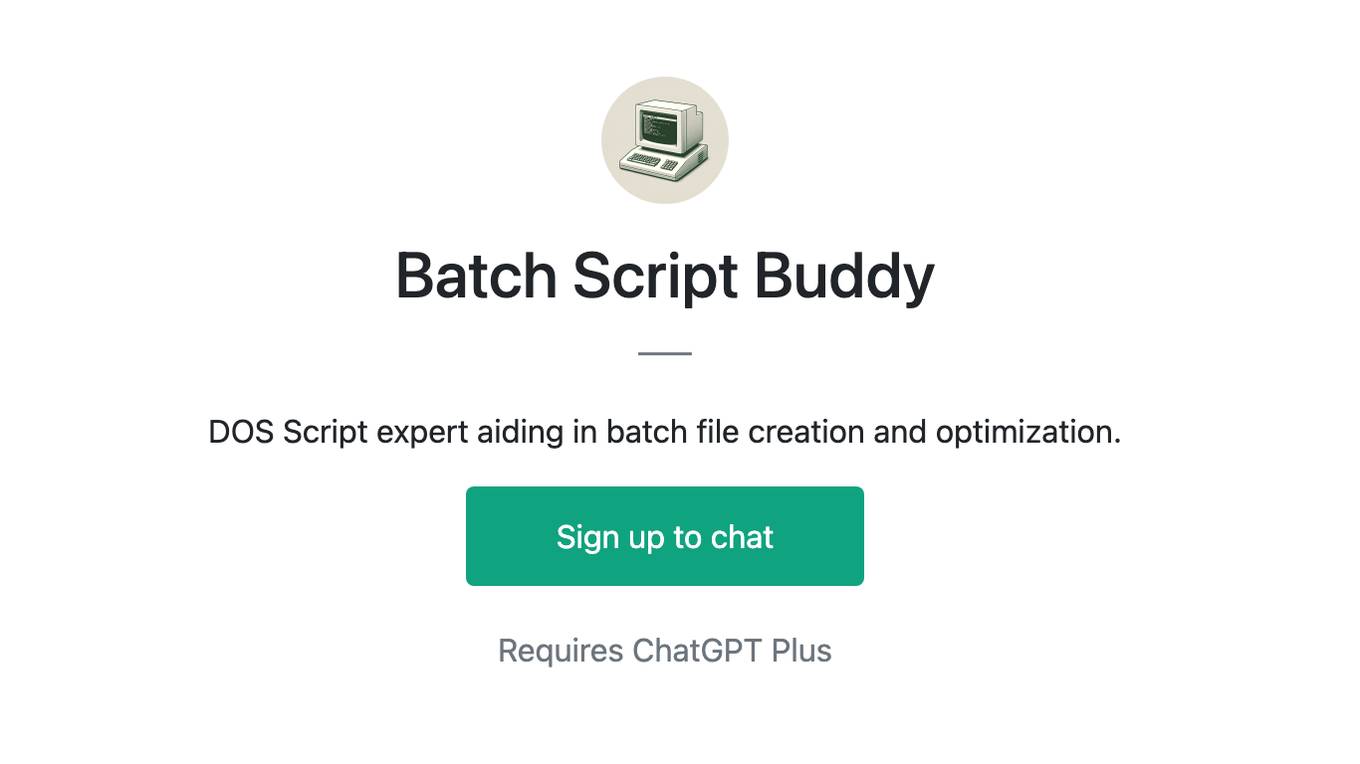Best AI tools for< Script Input >
20 - AI tool Sites
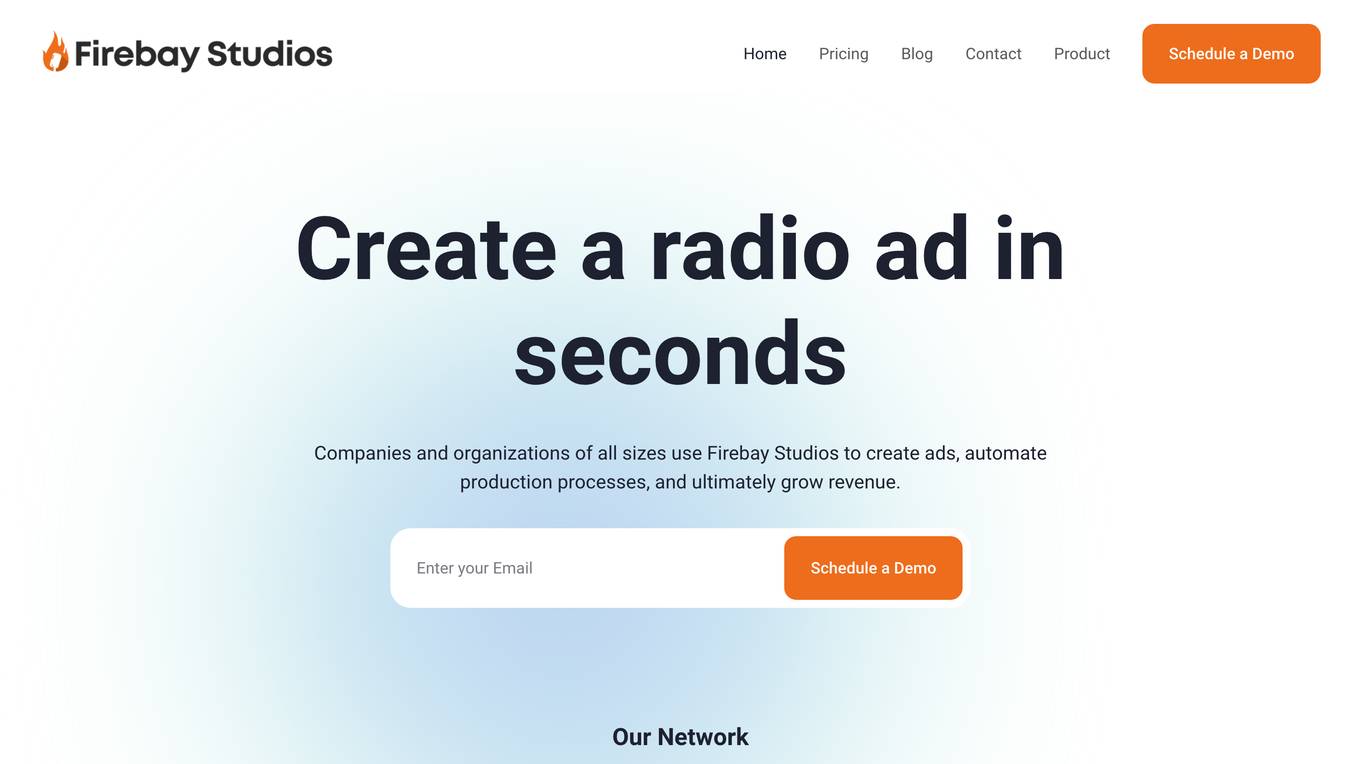
Firebay Studios
Firebay Studios is an AI-powered platform that enables users to create high-quality radio ads in seconds. The tool helps companies and organizations of all sizes to automate production processes, streamline ad creation, and ultimately boost revenue. With features like AI & Cloned Voices, Editing & Production, Script Writing, SFX & Music, and support for 29 languages, Firebay Studios offers a comprehensive solution for creating captivating audio-based advertisements effortlessly.
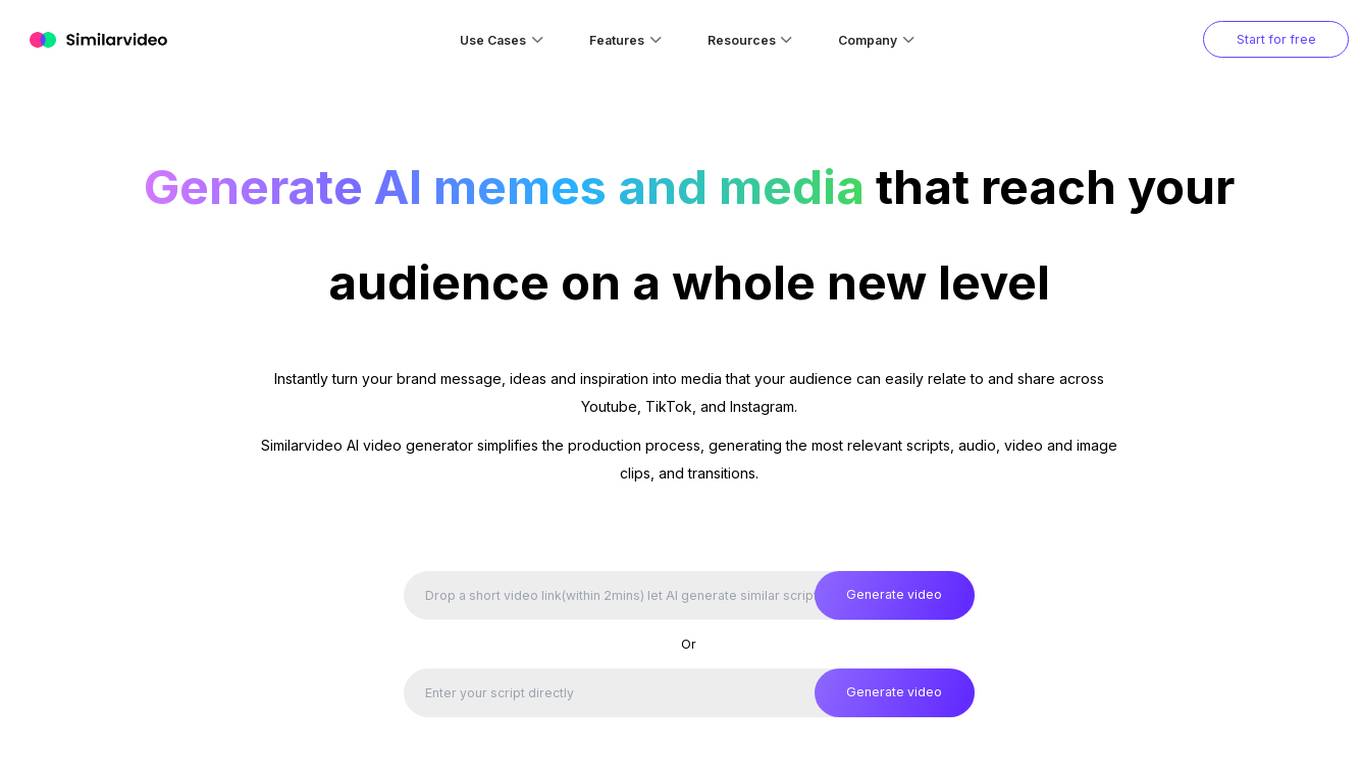
Similarvideo
Similarvideo is an AI video generator tool that simplifies the process of creating marketing videos. It allows users to generate AI memes and media to engage their audience across platforms like Youtube, TikTok, and Instagram. The tool leverages meme marketing at the speed of AI, helping users communicate ideas effectively and increase brand awareness. With features like AI-powered scripts, voice generation, intuitive video editor, and a vast library of stock media, Similarvideo offers a complete solution for creating short videos. Users can create and translate videos in multiple languages with just a click, making it a versatile tool for content creators and marketers.

StoryboardHero
StoryboardHero is an AI-powered online platform that helps video agencies and creators generate storyboards quickly and easily. With StoryboardHero, users can input a script or a brief, and the AI will automatically generate a storyboard, complete with visuals. StoryboardHero also offers a range of features to help users customize their storyboards, including the ability to add their own branding, edit the script and visuals, and collaborate with team members. StoryboardHero is a valuable tool for anyone who wants to create high-quality storyboards quickly and easily.
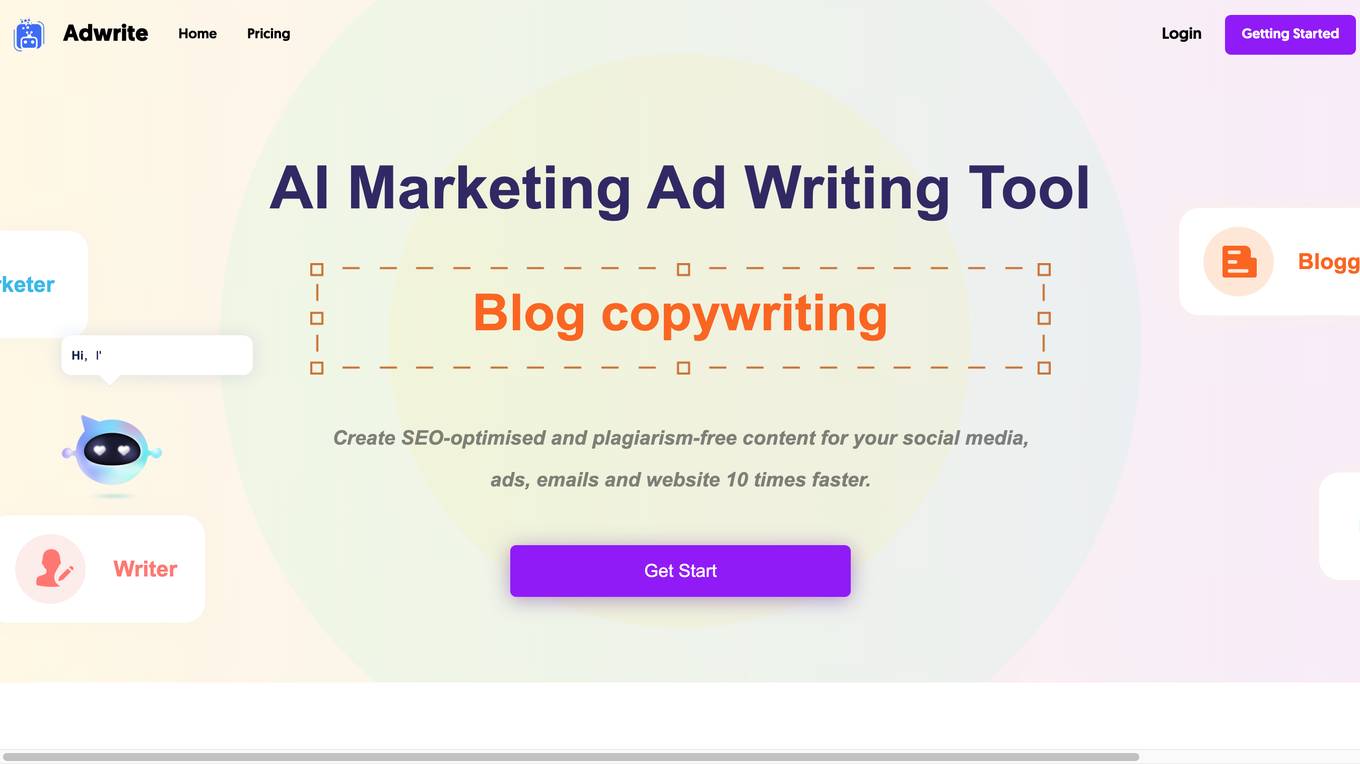
Adwrite
Adwrite is an AI-powered marketing ad copywriting tool that helps users create SEO-optimized and plagiarism-free content for various platforms, including social media, ads, emails, and websites. It offers a range of features and templates to assist marketers, writers, bloggers, and freelancers in generating high-quality marketing copy quickly and efficiently.
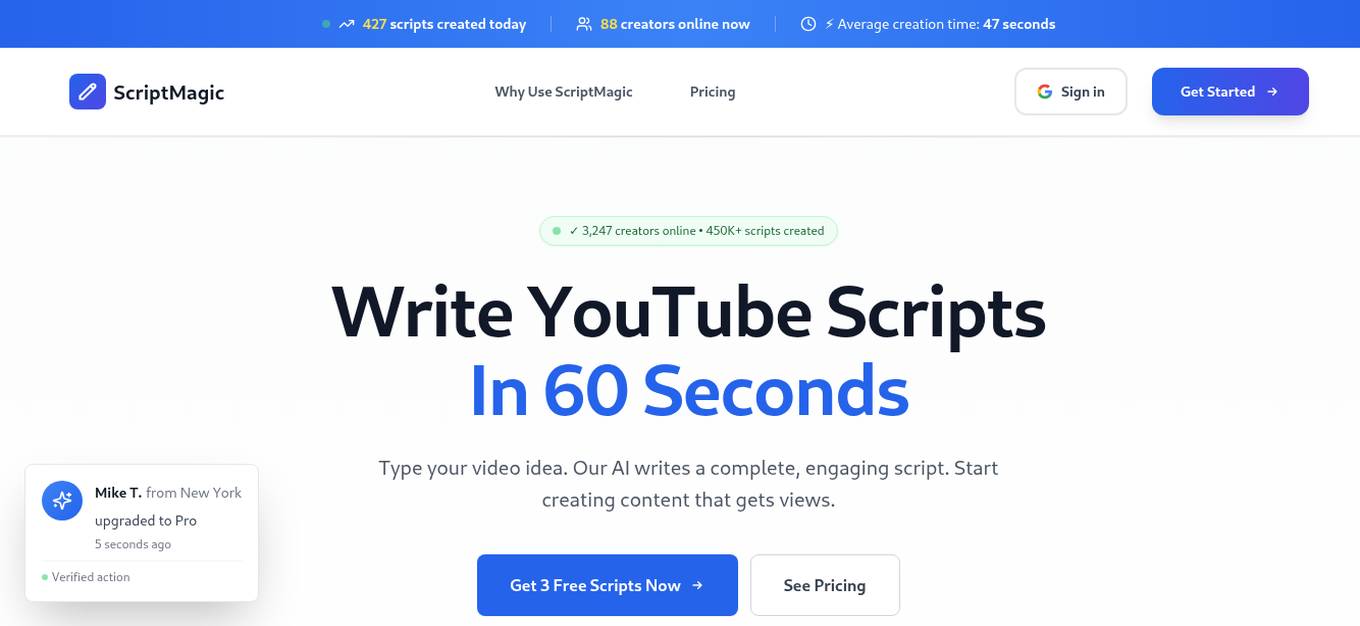
ScriptMagic
ScriptMagic is an AI-powered tool that specializes in generating professional video scripts. It leverages advanced algorithms to analyze input data and produce high-quality scripts suitable for various video content. With ScriptMagic, users can save time and effort in scriptwriting, ensuring consistency and creativity in their video projects. The tool is designed to cater to content creators, marketers, and businesses looking to streamline their video production process. ScriptMagic offers a user-friendly interface and intuitive features that make script generation efficient and effective.

OpenResty
The website is currently displaying a '403 Forbidden' error message, which indicates that the server is refusing to respond to the request. This error is often caused by insufficient permissions or misconfiguration on the server side. The 'openresty' mentioned in the message is a web platform based on NGINX and LuaJIT, commonly used for building high-performance web applications. It is designed to handle a large number of concurrent connections and provide a scalable and efficient web server solution.
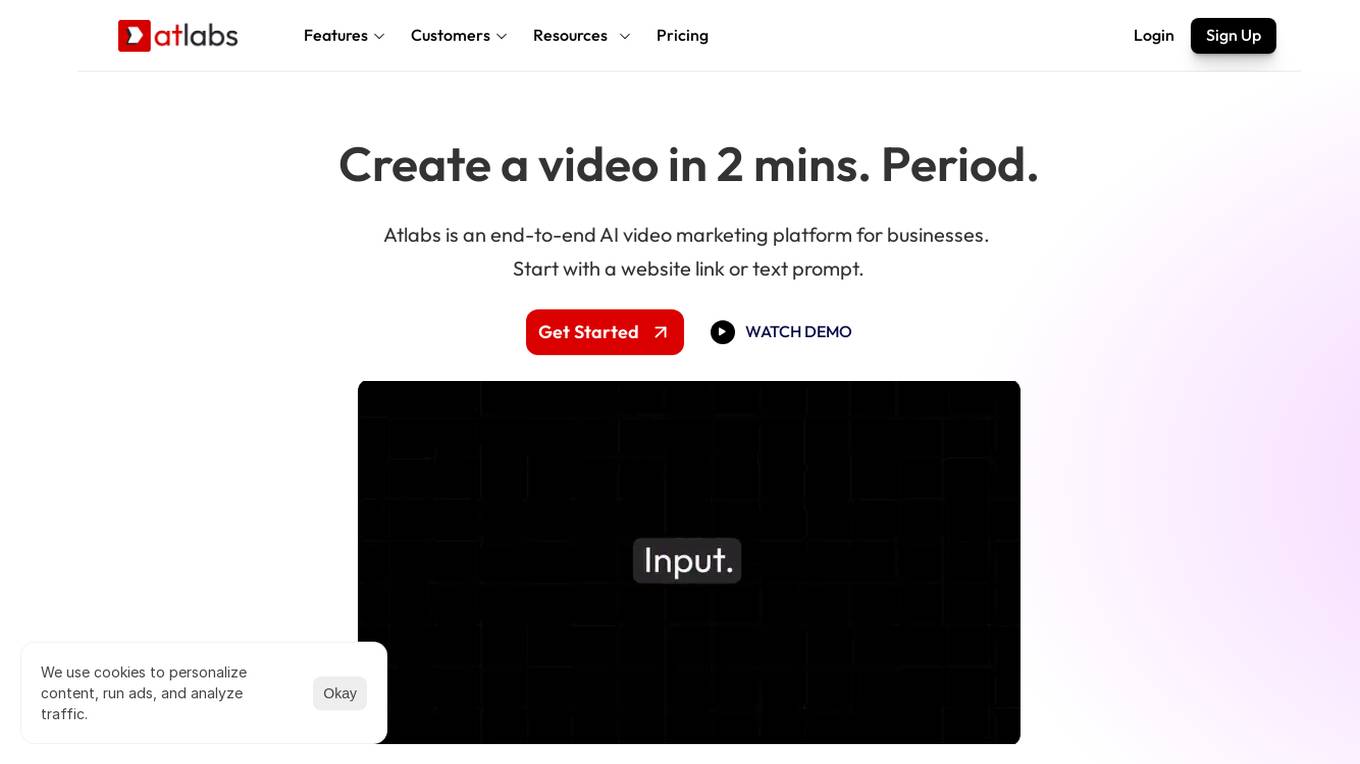
Atlabs
Atlabs is the #1 AI Video Generator, offering an end-to-end AI video marketing platform for businesses. It allows users to create engaging videos in minutes by starting with a website link or text prompt. The platform provides features like AI Script Writer, AI Visuals Generator, AI Brand Model, AI Voiceovers, Trendy Captions, one-click translation, and more. Users can create high-quality videos with motion graphics, B-rolls, captions, and other assets effortlessly. Atlabs is trusted by various brands globally and offers a complete video communications toolkit for busy individuals.
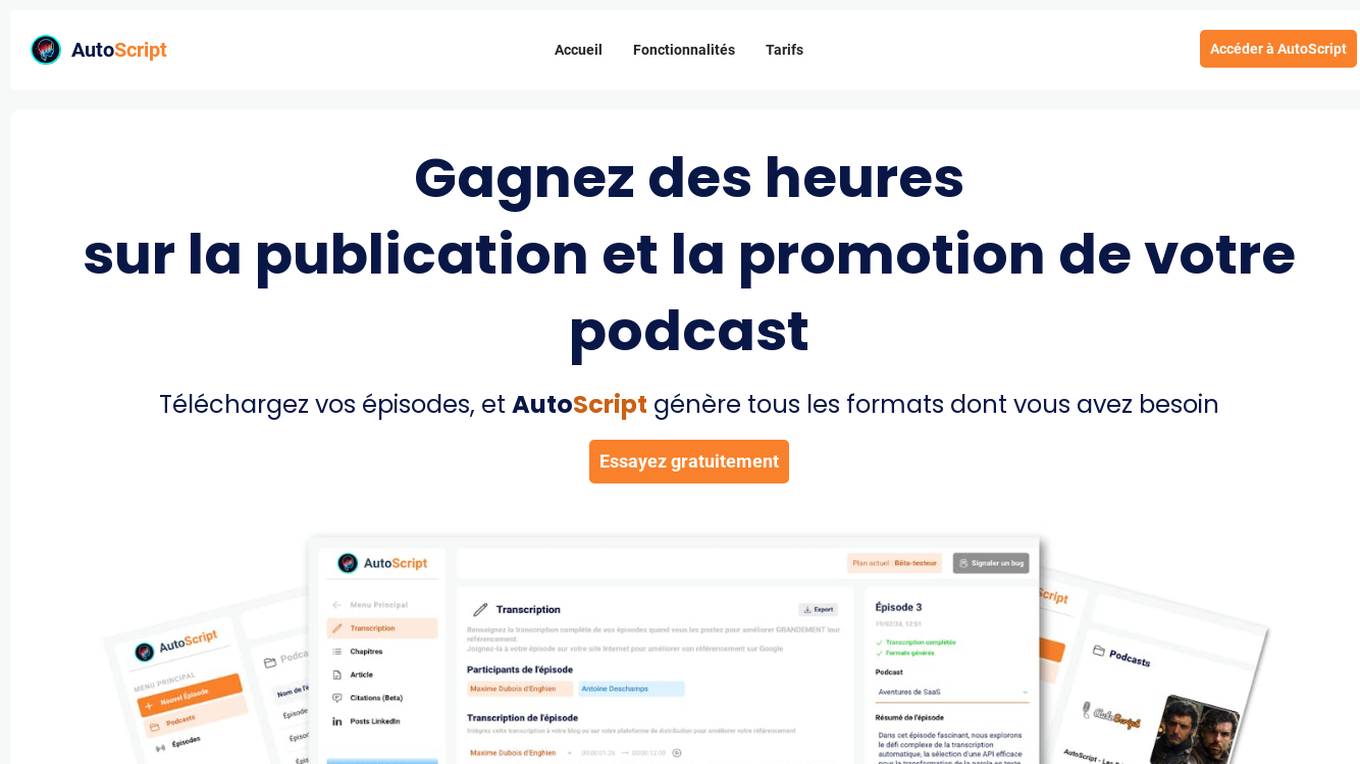
AutoScript
AutoScript is an advanced AI-powered tool designed to automate the process of scriptwriting for videos, movies, and other multimedia content. By utilizing cutting-edge natural language processing algorithms, AutoScript can generate high-quality scripts quickly and efficiently. With its user-friendly interface, content creators can easily input their requirements and receive well-crafted scripts tailored to their needs. Whether you are a filmmaker, YouTuber, or content creator, AutoScript streamlines the scriptwriting process, saving you time and effort.
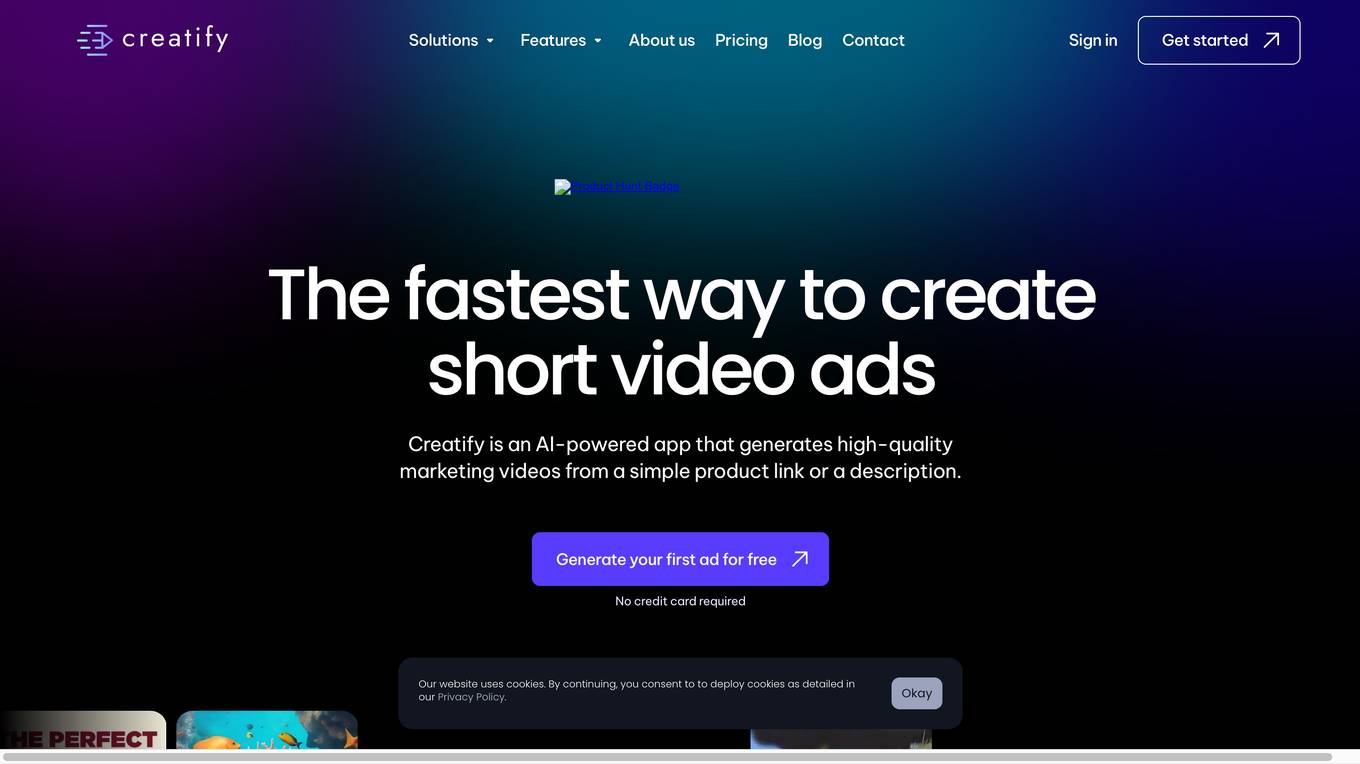
Creatify
Creatify is an AI-powered application that enables users to create high-quality marketing videos quickly and effortlessly. By simply inputting a product link or description, Creatify generates engaging video ads, helping businesses increase ROI, test multiple ad variations, and reach their target audience effectively. With features like URL to short video ad, AI Avatar, Text-to-Speech, AI Script Writer, and Custom Avatar, Creatify offers a comprehensive solution for video ad creation. Trusted by over 400,000 brands and advertisers, Creatify revolutionizes the way marketing videos are produced, making it accessible to businesses of all sizes.
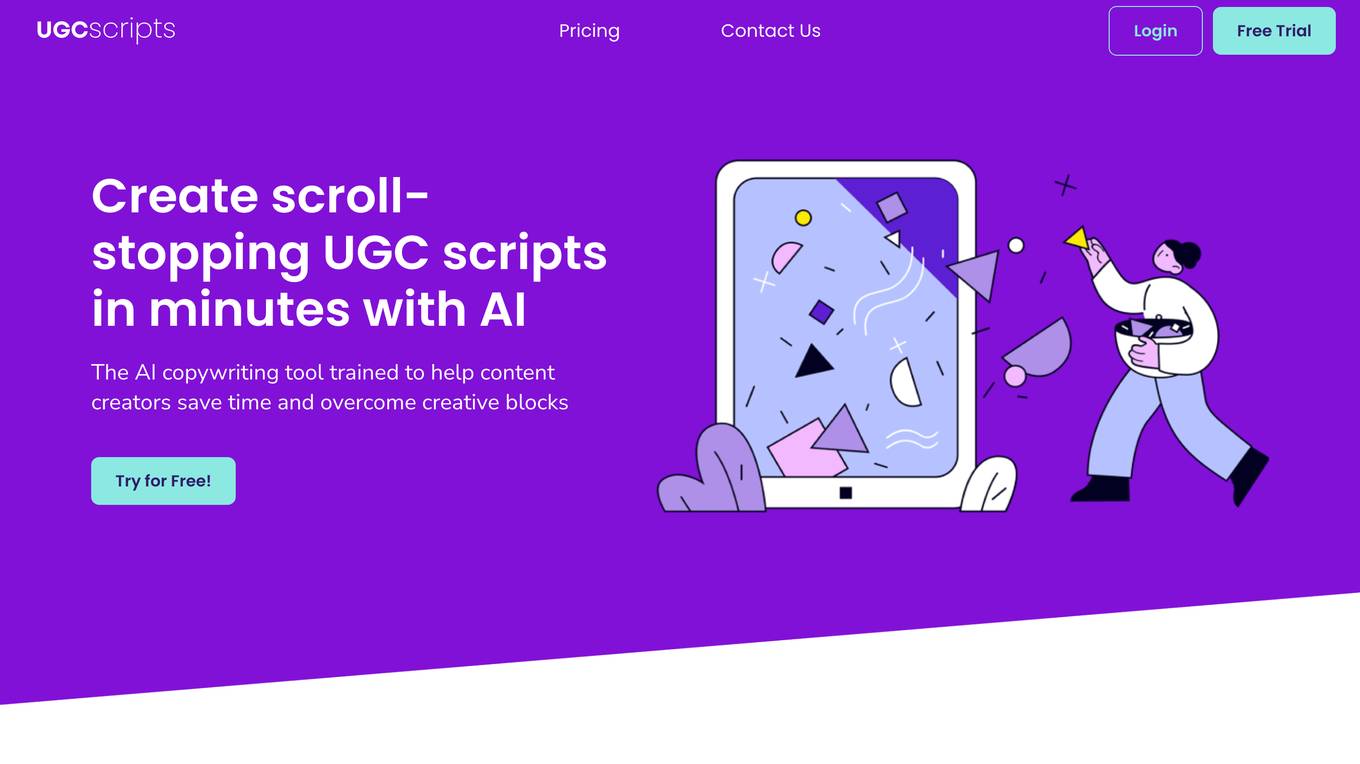
UGC Scripts
UGC Scripts is an AI-powered tool that helps content creators, brands, and agencies create scroll-stopping user-generated content (UGC) scripts in minutes. With UGC Scripts, you can input brand details, select your content style, and provide some context to generate unique and engaging UGC scripts that resonate with your audience. The platform offers a variety of features to help you streamline your creative process, including a free library of scripts, tech support, a partner program, and a dedicated sales team.
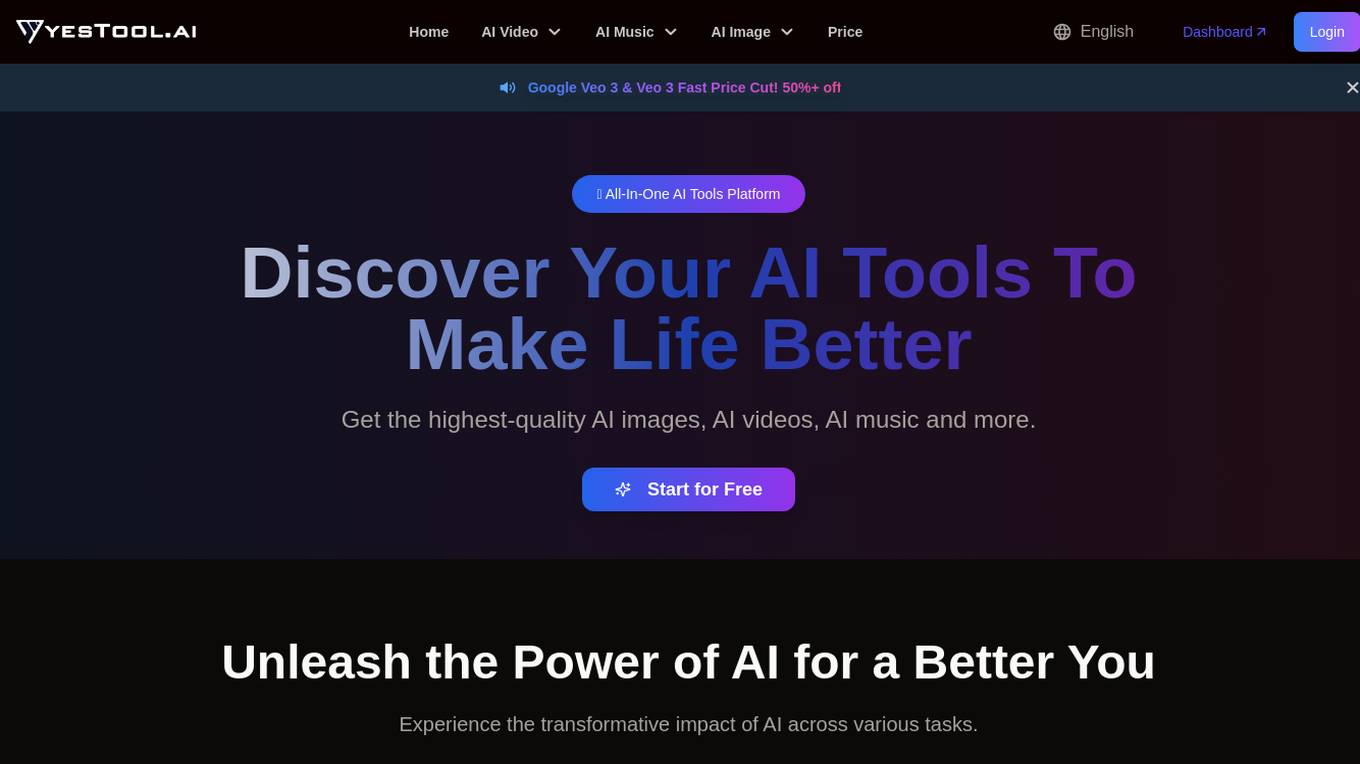
Yestool.ai
Yestool.ai is an all-in-one AI platform that offers a range of AI tools to create professional videos effortlessly. Users can input scripts, stories, or content descriptions into the AI-powered editor, which then processes the content to generate high-quality videos with visuals, voiceover, and music. The platform allows instant download and sharing of the created videos in HD quality, suitable for any platform. Yestool.ai also provides tools for upscaling videos, converting speech to video, generating music from text or lyrics, and creating images from text or existing images. With a focus on simplicity and efficiency, Yestool.ai aims to empower users to enhance their video creation process using advanced AI technology.
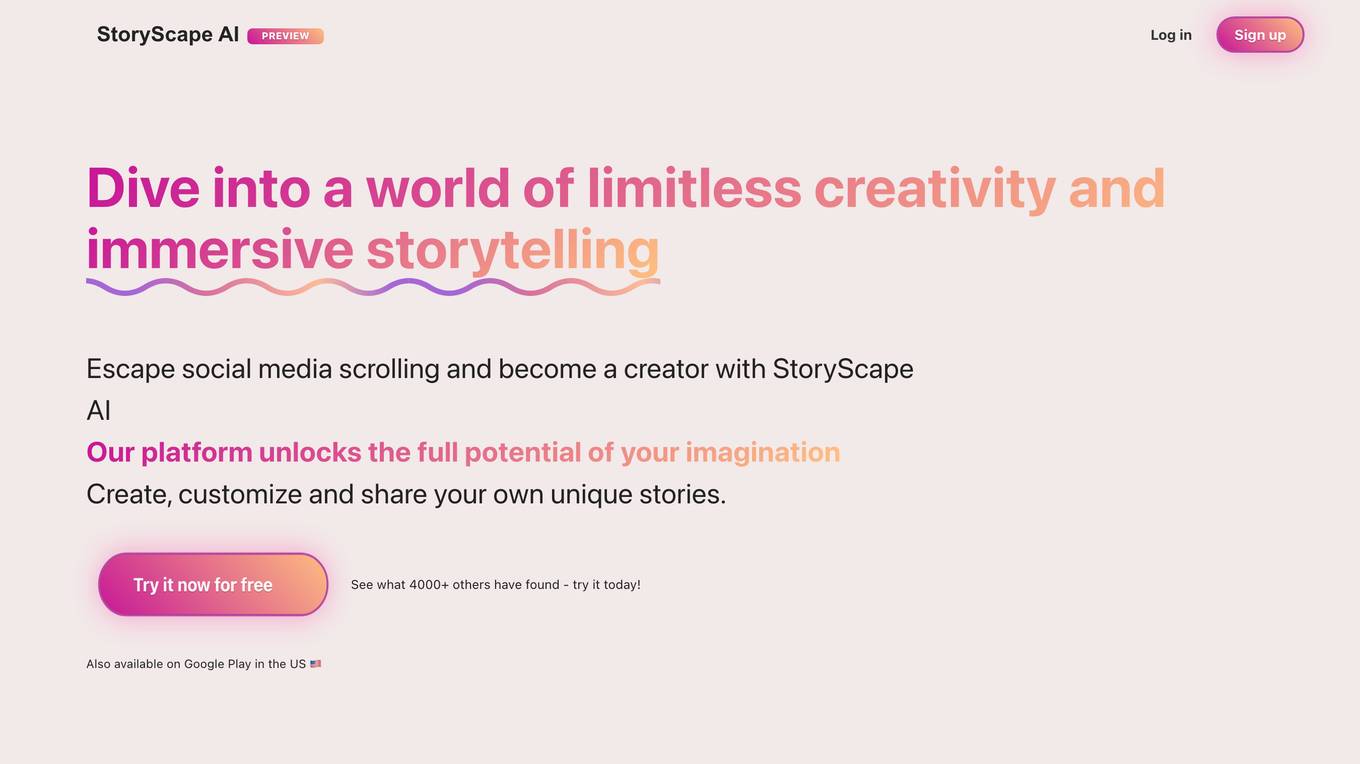
StoryScape AI
StoryScape AI is an innovative AI tool that helps users create engaging and interactive stories effortlessly. With its advanced natural language processing capabilities, users can generate compelling narratives by simply inputting prompts. The tool offers a user-friendly interface and a wide range of customization options to tailor the stories to individual preferences. StoryScape AI is suitable for writers, content creators, educators, and anyone looking to enhance their storytelling skills with the power of AI technology.
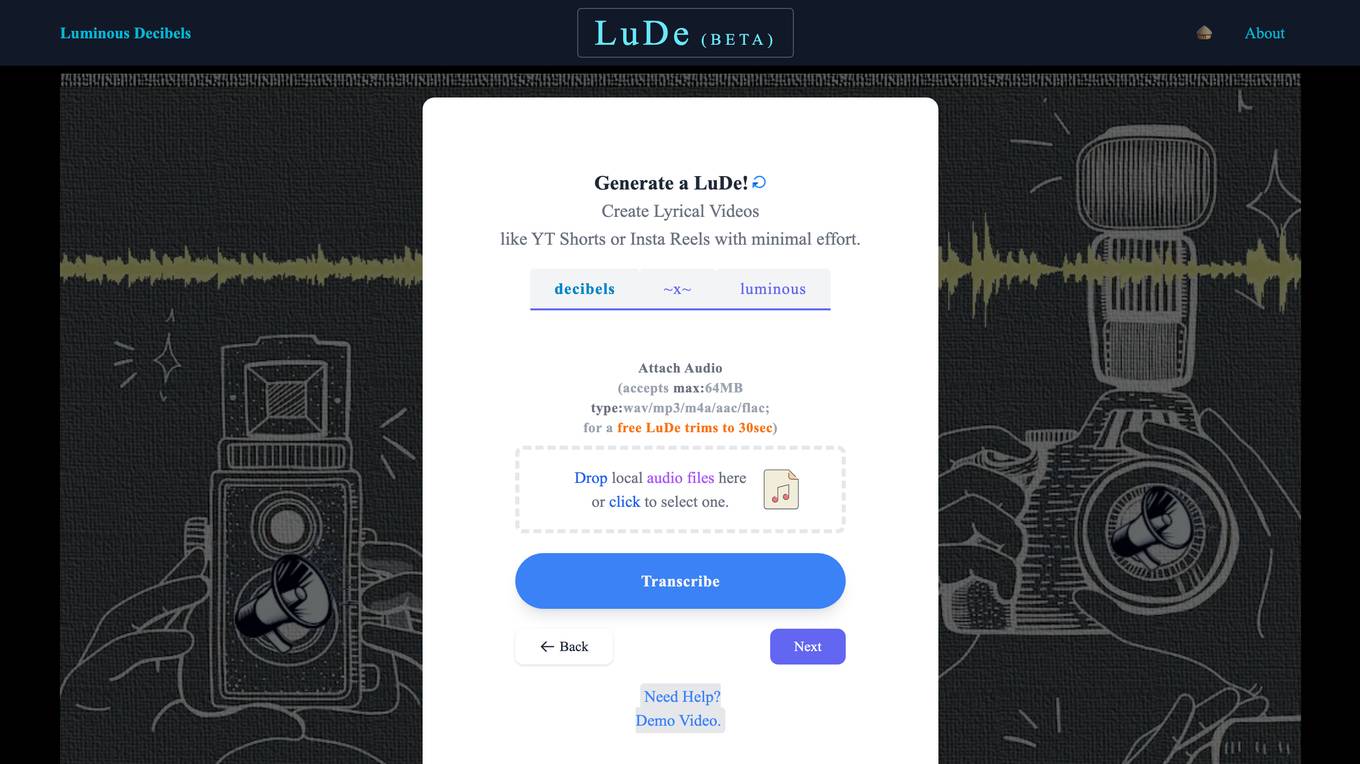
LuDe
LuDe is an AI-powered video creator application that allows users to generate lyrical videos like YouTube Shorts or Instagram Reels with minimal effort. Users can attach audio files in various formats and transcribe scripts to customize their videos. The application offers different video background options and requires users to 'Luminate' before the final video creation. LuDe leverages AI technology to create engaging video content based on the provided audio or text input.
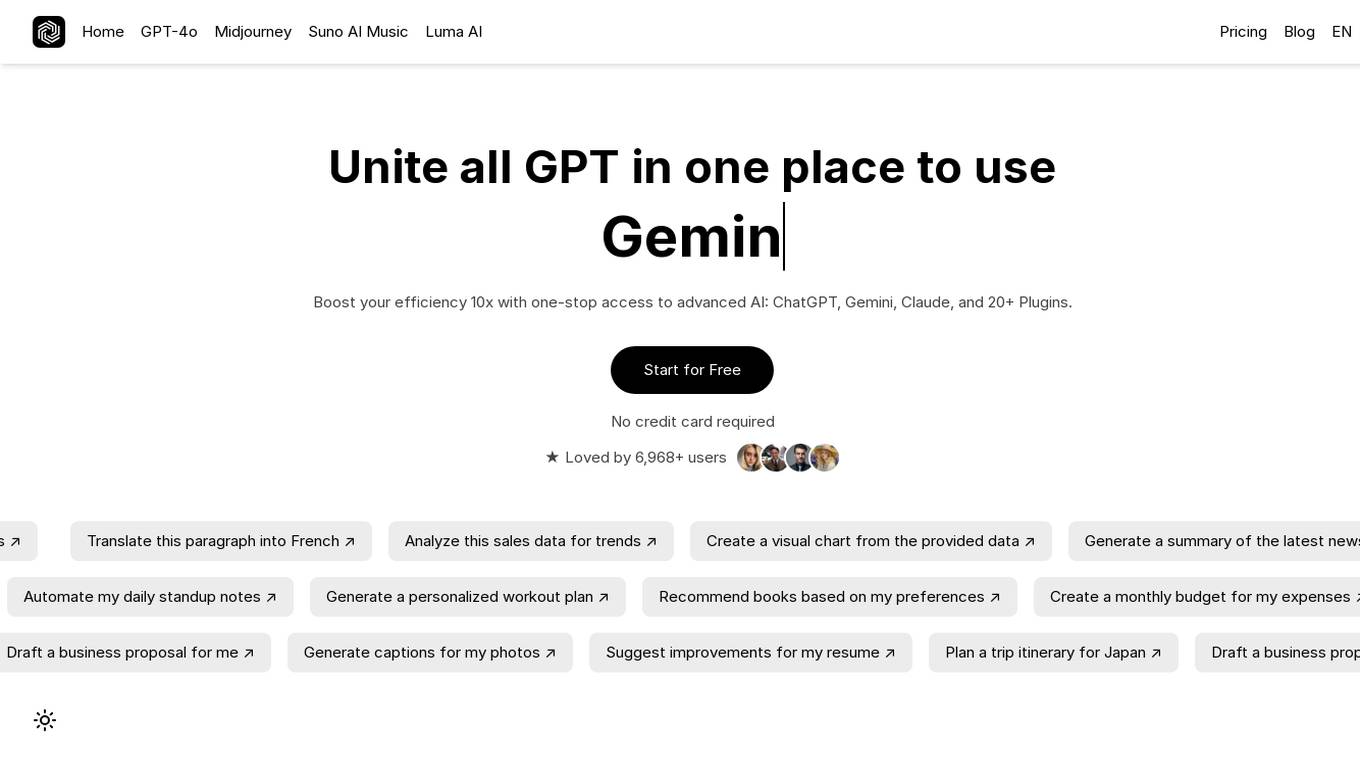
UniGPT
UniGPT is an AI-powered text generation tool that uses the GPT-3 model to generate human-like text based on the input provided. It can be used for various applications such as content creation, chatbots, and automated writing tasks. UniGPT is designed to assist users in generating high-quality text content efficiently and effectively.
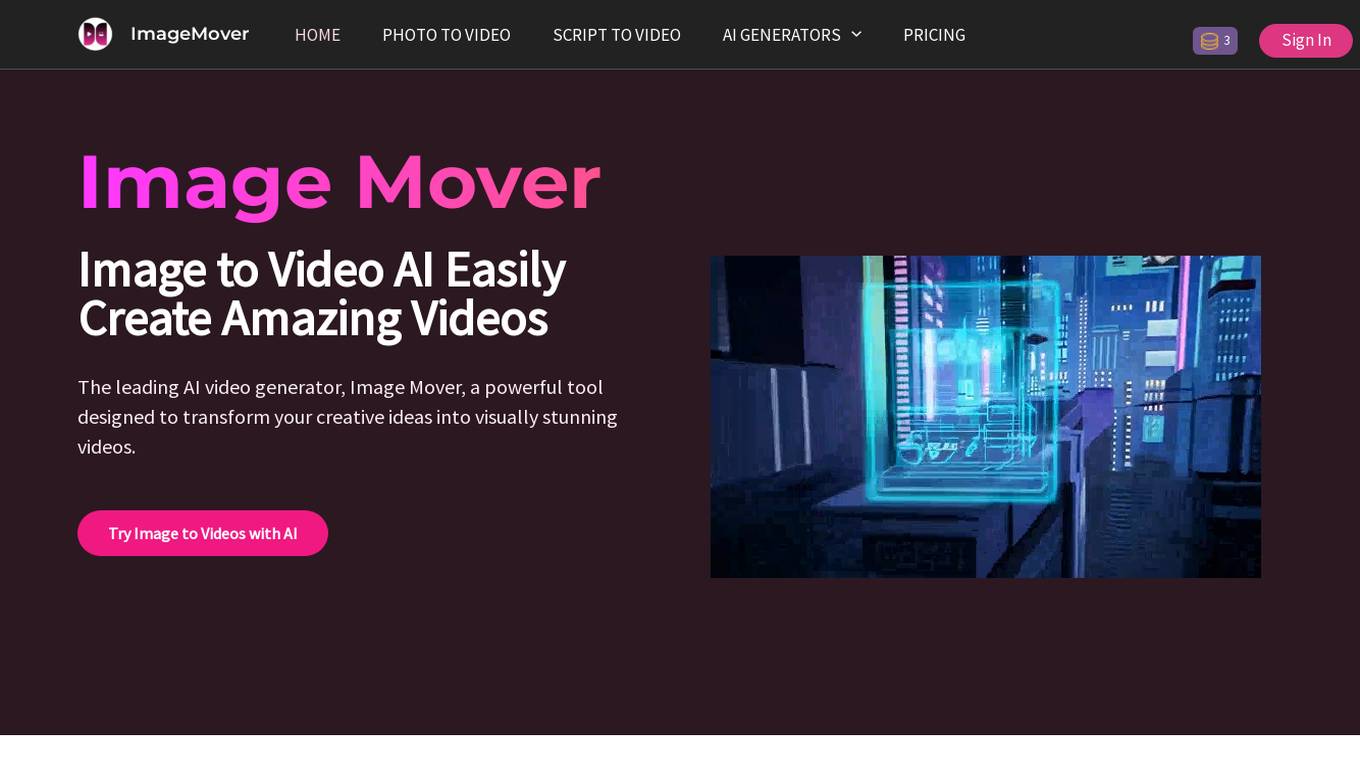
ImageMover
ImageMover is a leading AI video generator tool designed to transform creative ideas into visually stunning videos. With advanced AI technology, it effortlessly converts various inputs like images, scripts, and text into captivating videos. The platform offers user-friendly interface, diverse video templates, and seamless processing to create polished and engaging videos. ImageMover is ideal for social media marketing, product demonstrations, and storytelling campaigns, enabling users to elevate their brand visibility and engage their audience effectively.
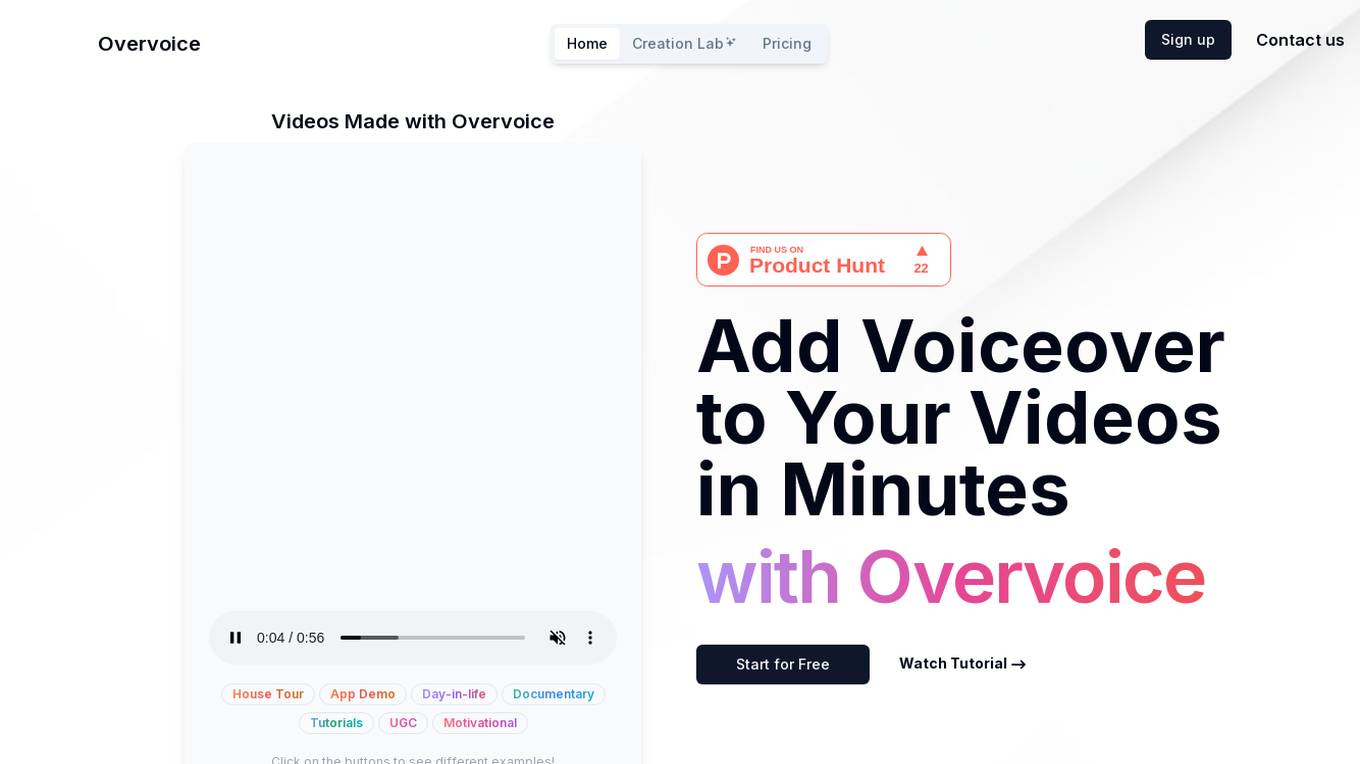
Overvoice
Overvoice is an AI-powered tool that simplifies the process of adding voiceovers to videos. It offers a streamlined approach to creating demo videos, house tours, tutorials, and more. By leveraging advanced AI models, Overvoice generates high-quality voiceover scripts based on the context of the input videos. Users have full control over the tone, perspective, and voice selection, ensuring a perfect match with their video content. With multilingual support and HD voice capabilities, Overvoice helps businesses enhance customer engagement, increase conversion rates, and reach a global audience.
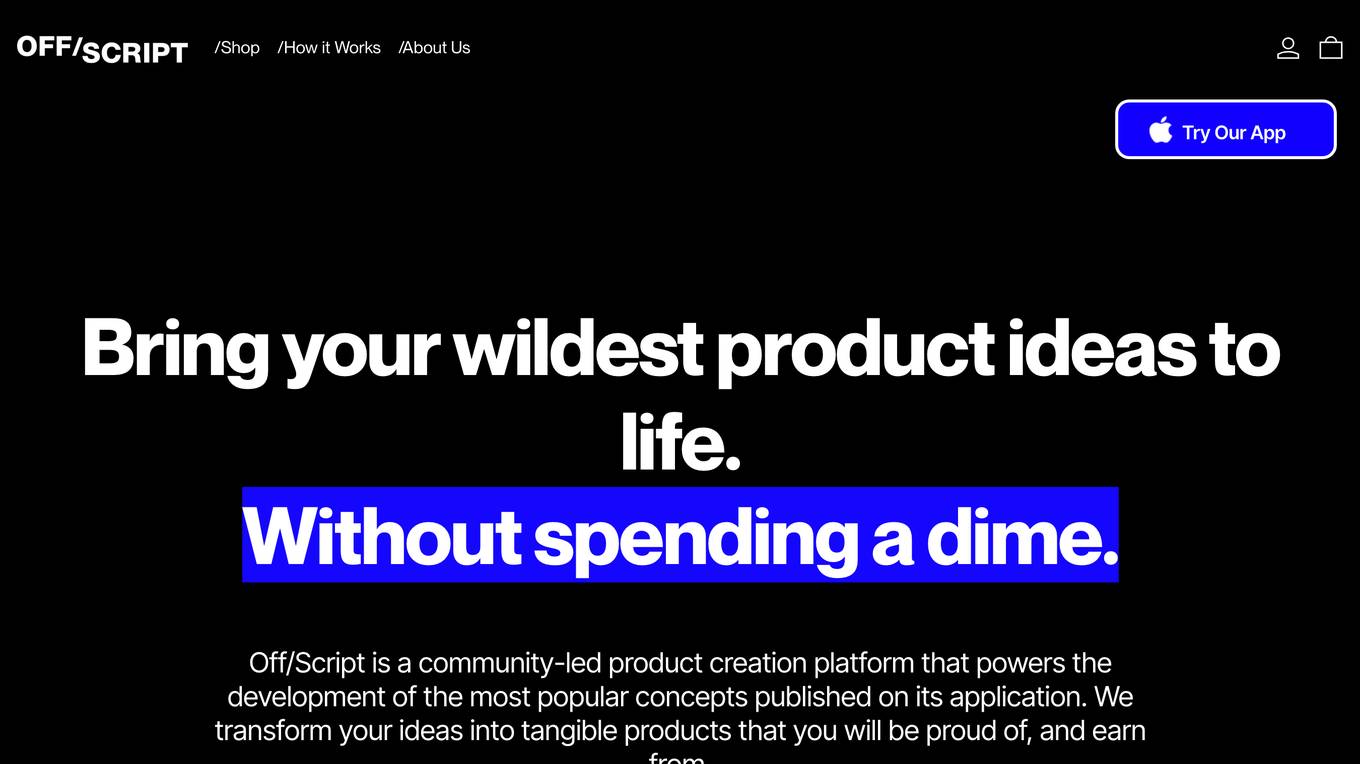
Off/Script
Off/Script is a community-led product creation platform that empowers users to bring their product ideas to life without spending any money. The platform provides users with access to an AI-powered product creation studio, a community of design experts, and a marketplace to sell their products. Off/Script handles all product creation and logistics requirements, so users can focus on what they do best: designing and creating innovative products.
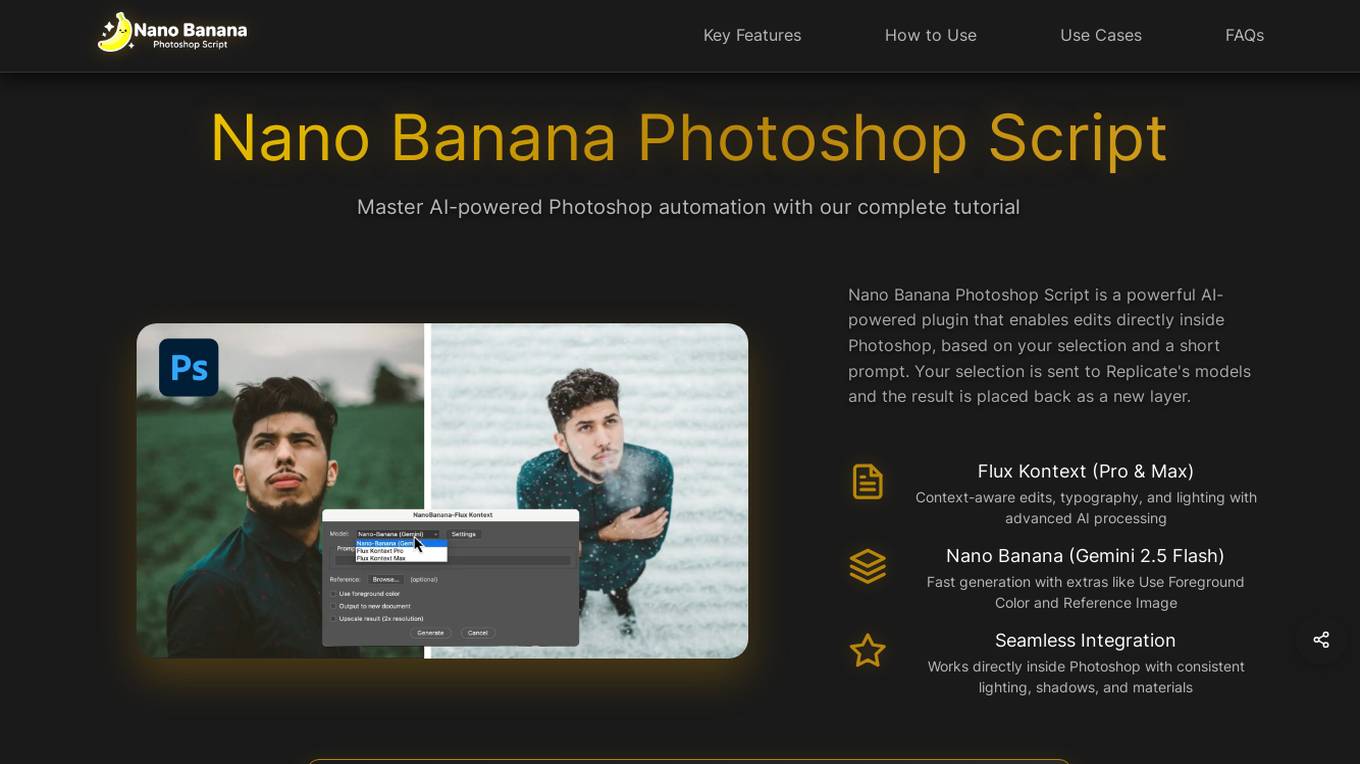
Nano Banana Photoshop Script
Nano Banana Photoshop Script is an AI-powered plugin that integrates seamlessly with Adobe Photoshop, enabling users to automate complex editing tasks, enhance images, and streamline creative workflows with intelligent prompts and AI model integration. The script utilizes advanced AI models like Flux Kontext and Nano Banana to analyze image selections and apply intelligent enhancements, providing rapid image generation and editing with professional results in seconds. Users can access both Flux Kontext and Nano Banana models for context-aware edits, typography, and advanced image processing, all within the native Photoshop interface. The tool supports batch processing, customization of automation settings, and export in various image formats, making it ideal for photographers, designers, and creative professionals seeking efficient and high-quality image editing solutions.

Clarity Write
Clarity Write is an open-source SaaS script that provides a comprehensive suite of AI-powered tools to transform content creation. With its powerful AI capabilities, users can effortlessly generate high-quality content, create stunning visuals, automate coding tasks, transcribe audio and video files, and engage with AI experts via chatbots. Clarity Write also offers a vast library of over 500 professionally designed templates, a feature-rich editor for refining content, and robust admin tools for streamlined management. By leveraging the capabilities of OpenAI APIs, Clarity Write empowers users to enhance their content creation process, unlock endless creativity, and simplify their operations.
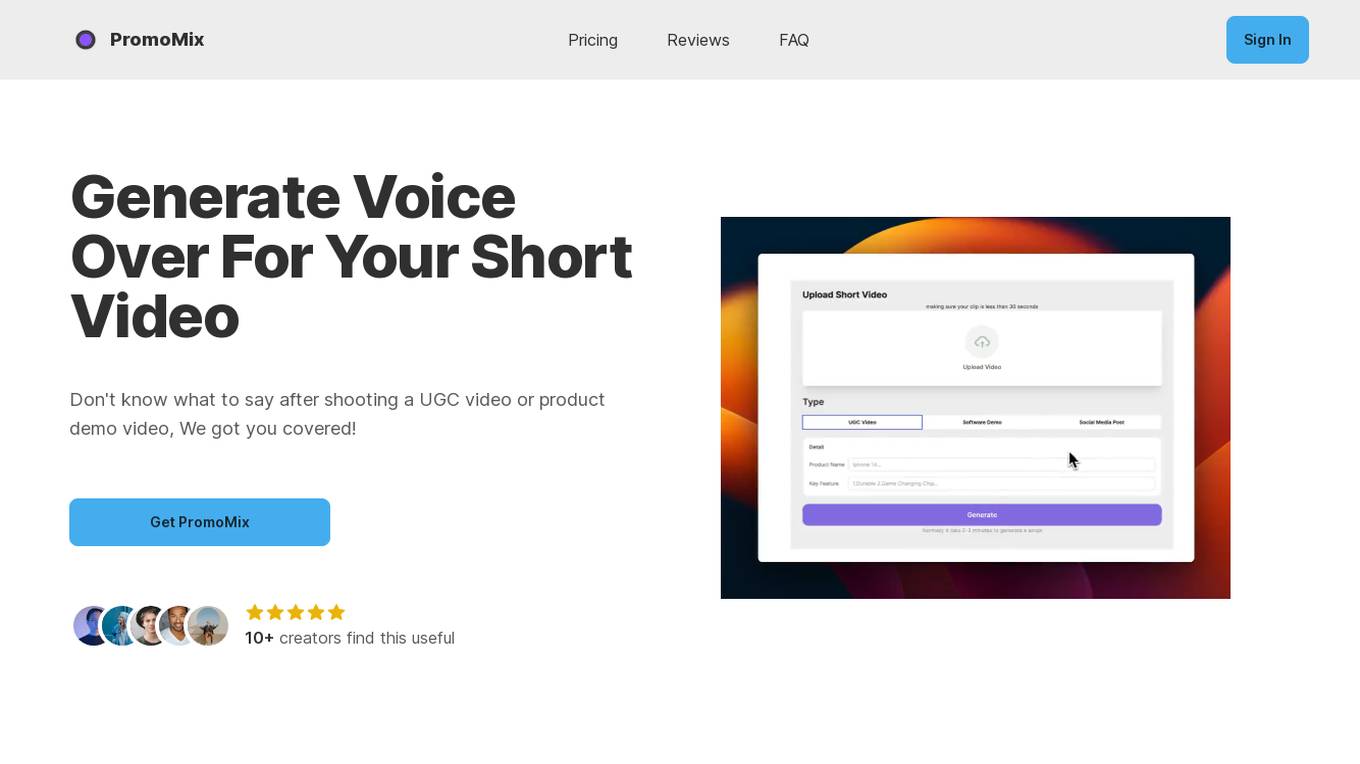
PromoMix
PromoMix is an AI-powered tool that helps users generate voiceovers for their short videos. It is designed to make it easy for users to create professional-sounding voiceovers, even if they don't have any experience in voiceover work. PromoMix offers a variety of features to help users create the perfect voiceover for their videos, including the ability to choose from a variety of voices, adjust the speed and pitch of the voice, and add music and sound effects. PromoMix is a valuable tool for anyone who wants to create high-quality voiceovers for their videos.
1 - Open Source AI Tools

ain
Ain is a terminal HTTP API client designed for scripting input and processing output via pipes. It allows flexible organization of APIs using files and folders, supports shell-scripts and executables for common tasks, handles url-encoding, and enables sharing the resulting curl, wget, or httpie command-line. Users can put things that change in environment variables or .env-files, and pipe the API output for further processing. Ain targets users who work with many APIs using a simple file format and uses curl, wget, or httpie to make the actual calls.
20 - OpenAI Gpts
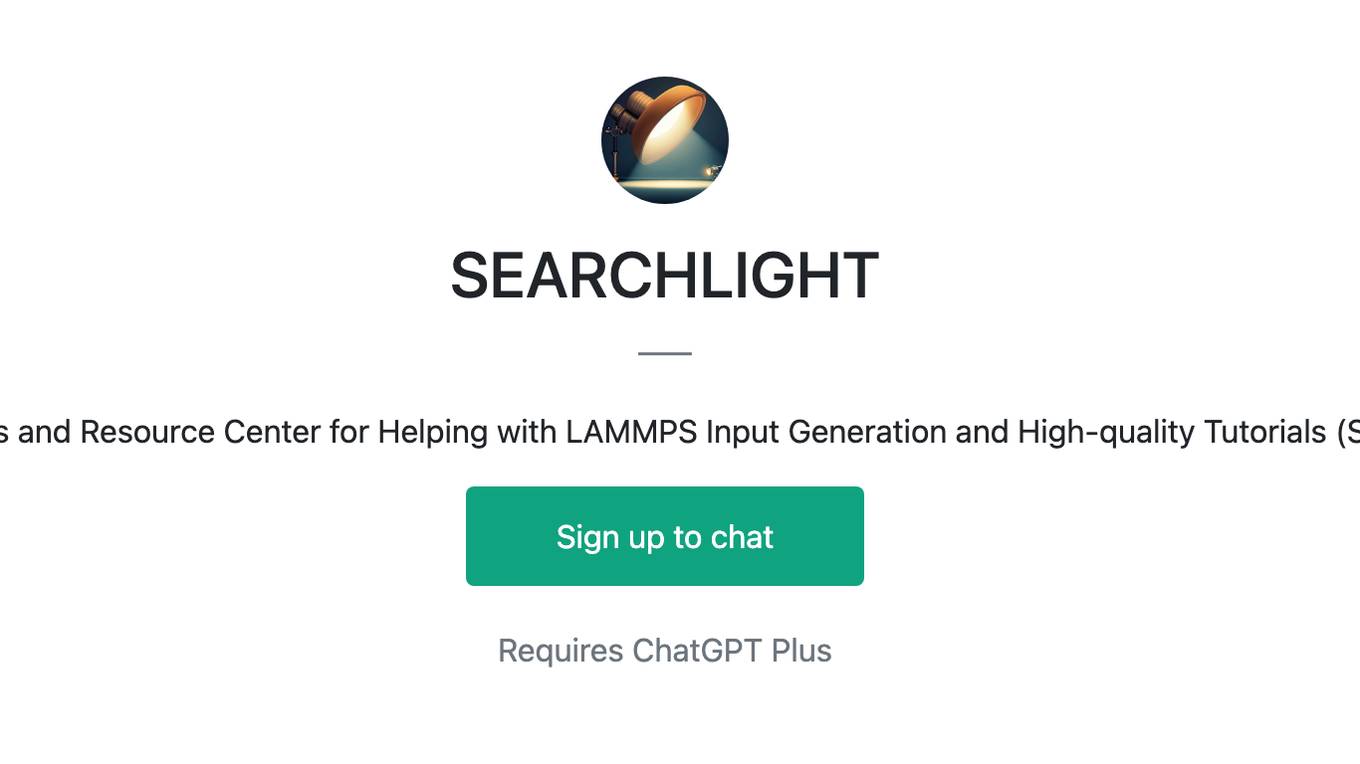
SEARCHLIGHT
Script Examples and Resource Center for Helping with LAMMPS Input Generation and High-quality Tutorials (SERCHLIGHT)
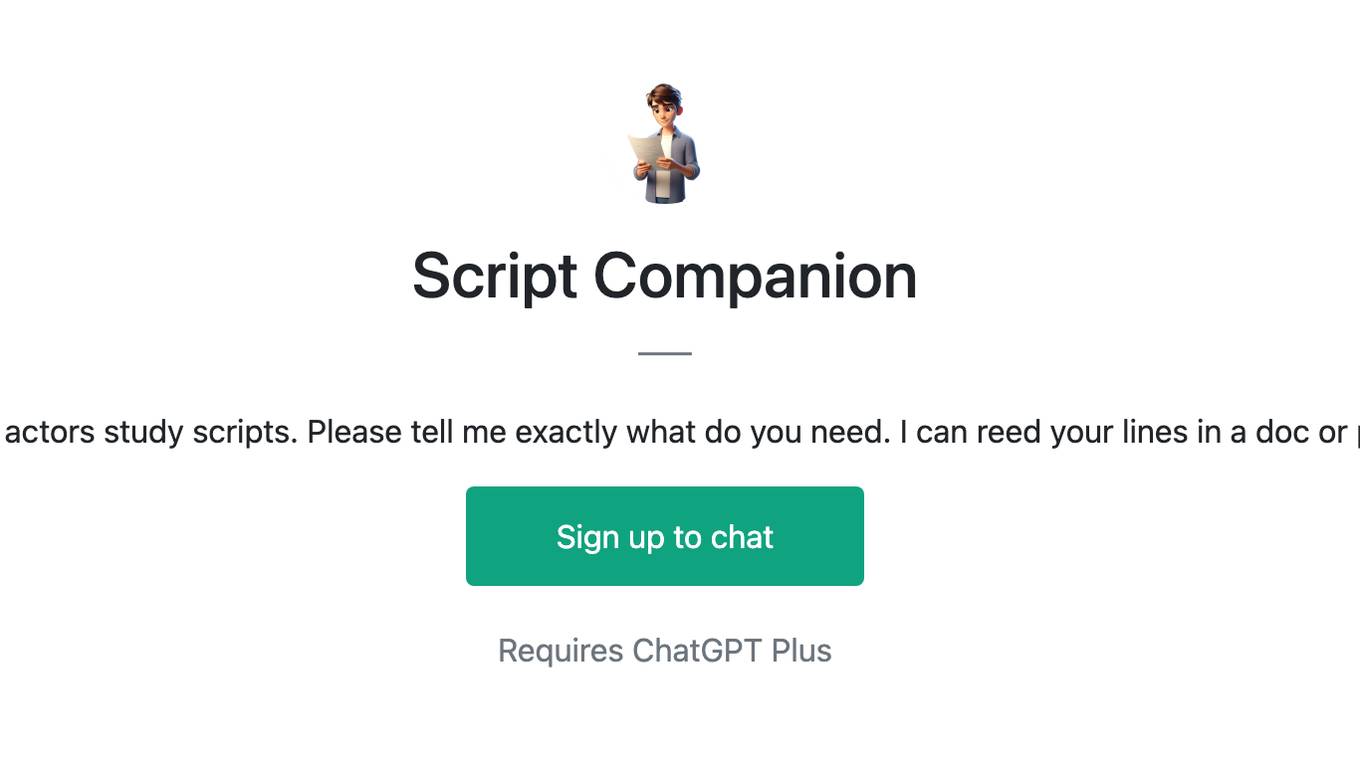
Script Companion
I help actors study scripts. Please tell me exactly what do you need. I can reed your lines in a doc or pdf.
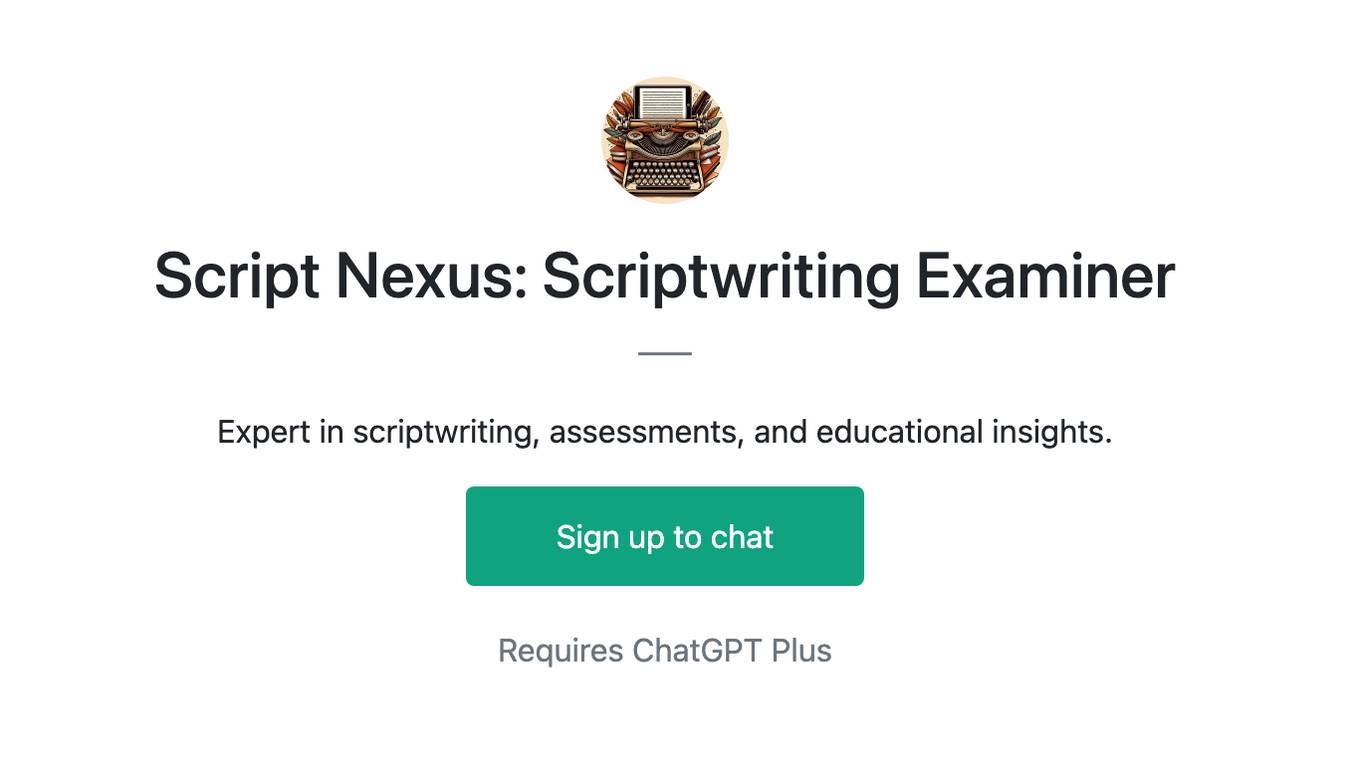
Script Nexus: Scriptwriting Examiner
Expert in scriptwriting, assessments, and educational insights.
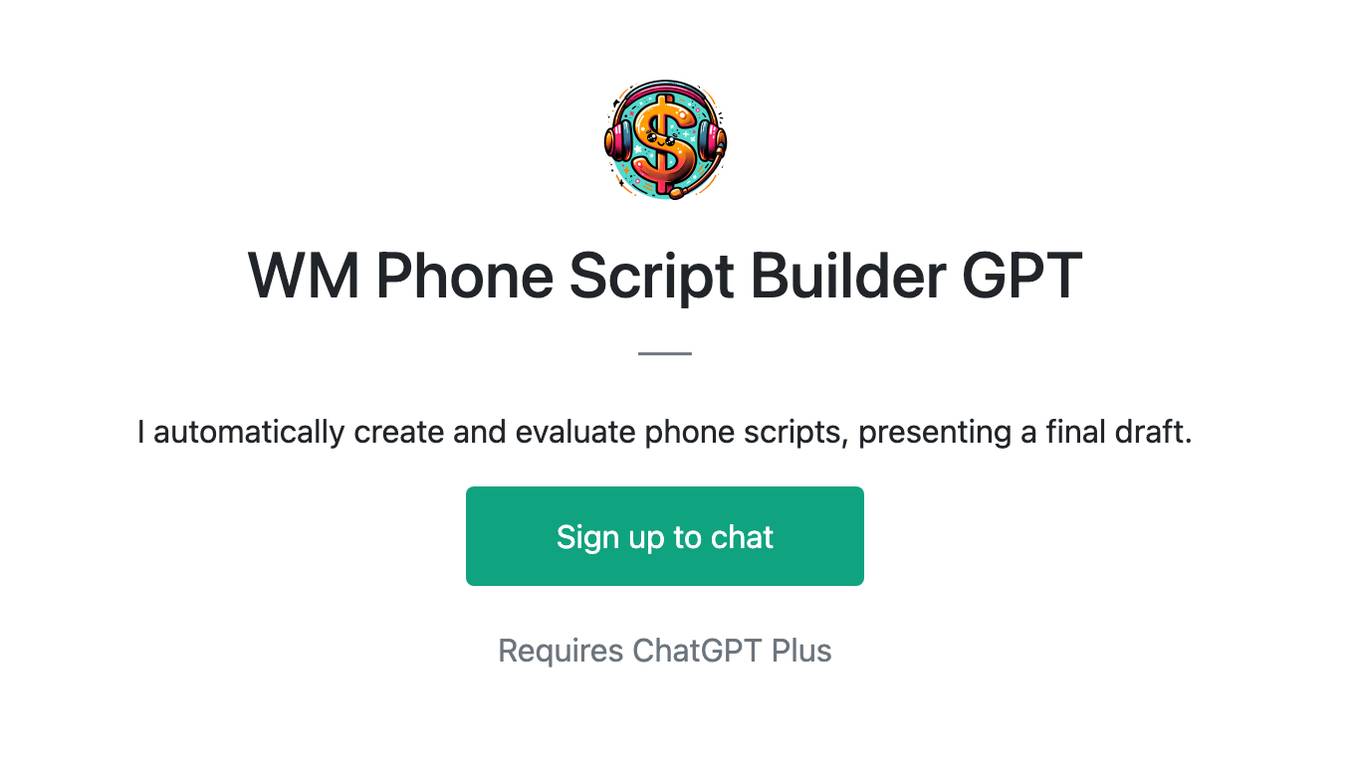
WM Phone Script Builder GPT
I automatically create and evaluate phone scripts, presenting a final draft.
